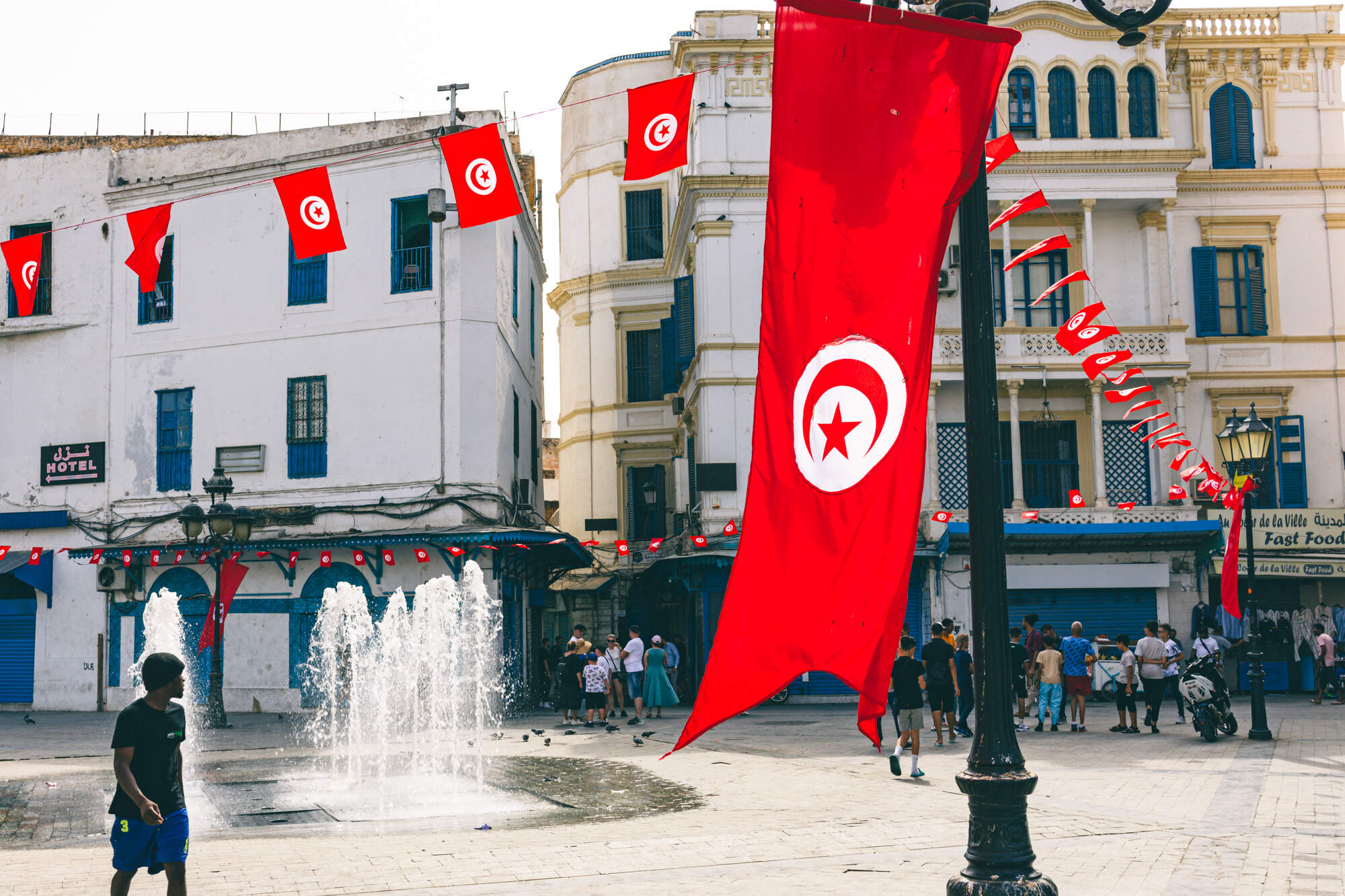Tunis: Medina and our first time in Africa
What do you do when you’re off work in the height of Danish summer, the weather is nice and life is good? Right, you go on a four-day flash trip to Tunisia!
To be fair, we did not decide to go South quite as spontaneous as that, and the reasoning was not
These lukewarm 26°C are not enough for me, where is it 40°C? Tunisia, let’s go!
The real reason was the celebration of his wedding of a Tunisian-born co-worker, who threw a big party for friends and family (and neighbours and dentists and the whole village apparently) in Tunis. And how often do you get invited to a Tunisian wedding? Not sure about you, but we do not expect to get this opportunity anytime soon again, so we threw our cameras into our carry-on luggage and boarded a plane to the North of Africa!
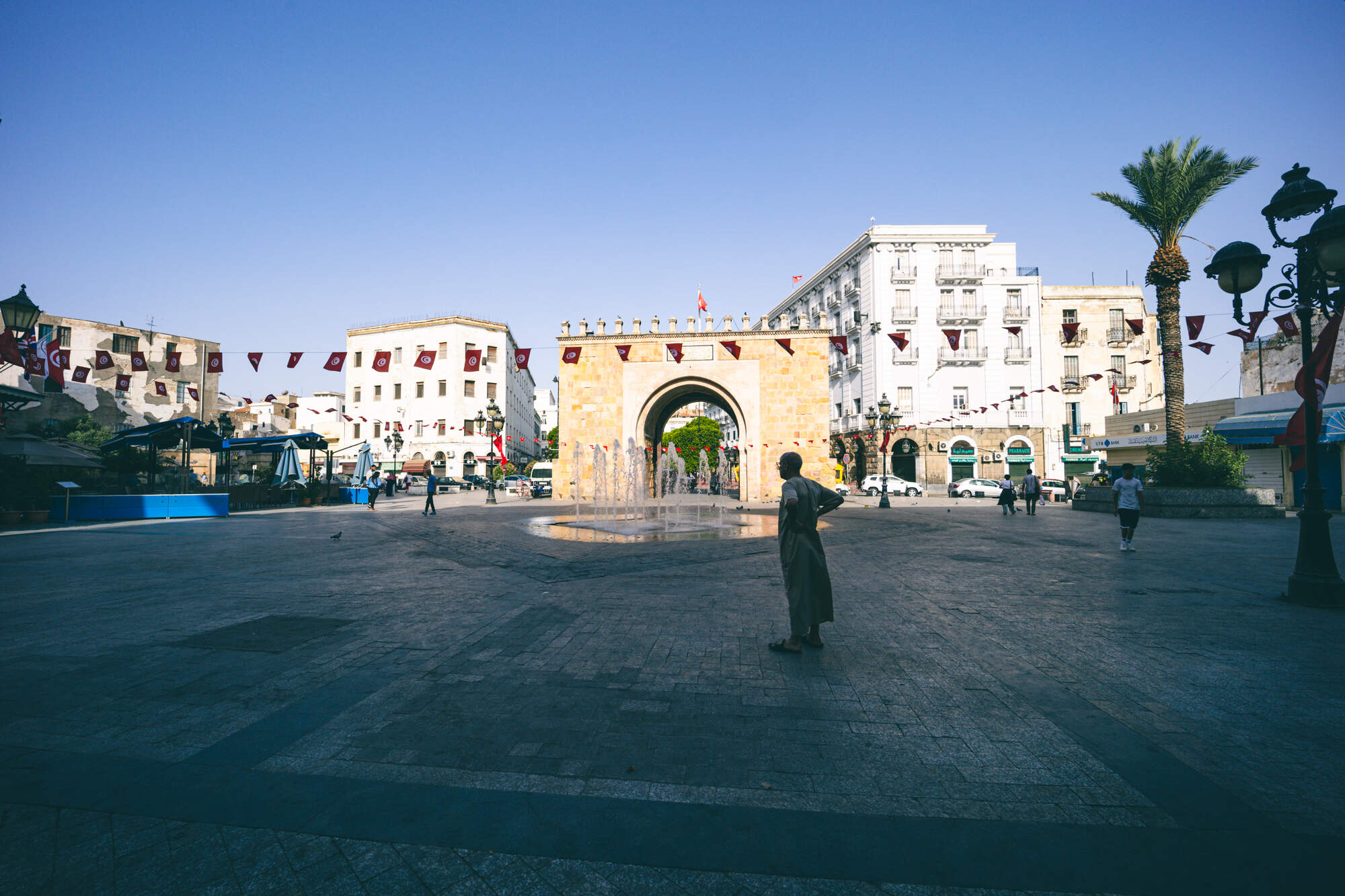
The Berges du Lac development does not currently serve alcohol. This was a condition imposed by investors from Saudi Arabia. ~ Wikipedia
Tips & Recommendations
There were a few things that excited or amazed us a lot and that we will always bring up when talking about Tunis - so let’s add them here as well! These are some tips and recommendations we became aware of during our trip that you might enjoy knowing - this is not everything to know as you can also google a lot. That you have to exchange EUR or USD at the airport or that tourists can sleep in a room together even though they’re not married is stuff you will get told in almost all travel articles or Reddit posts about Tunis.
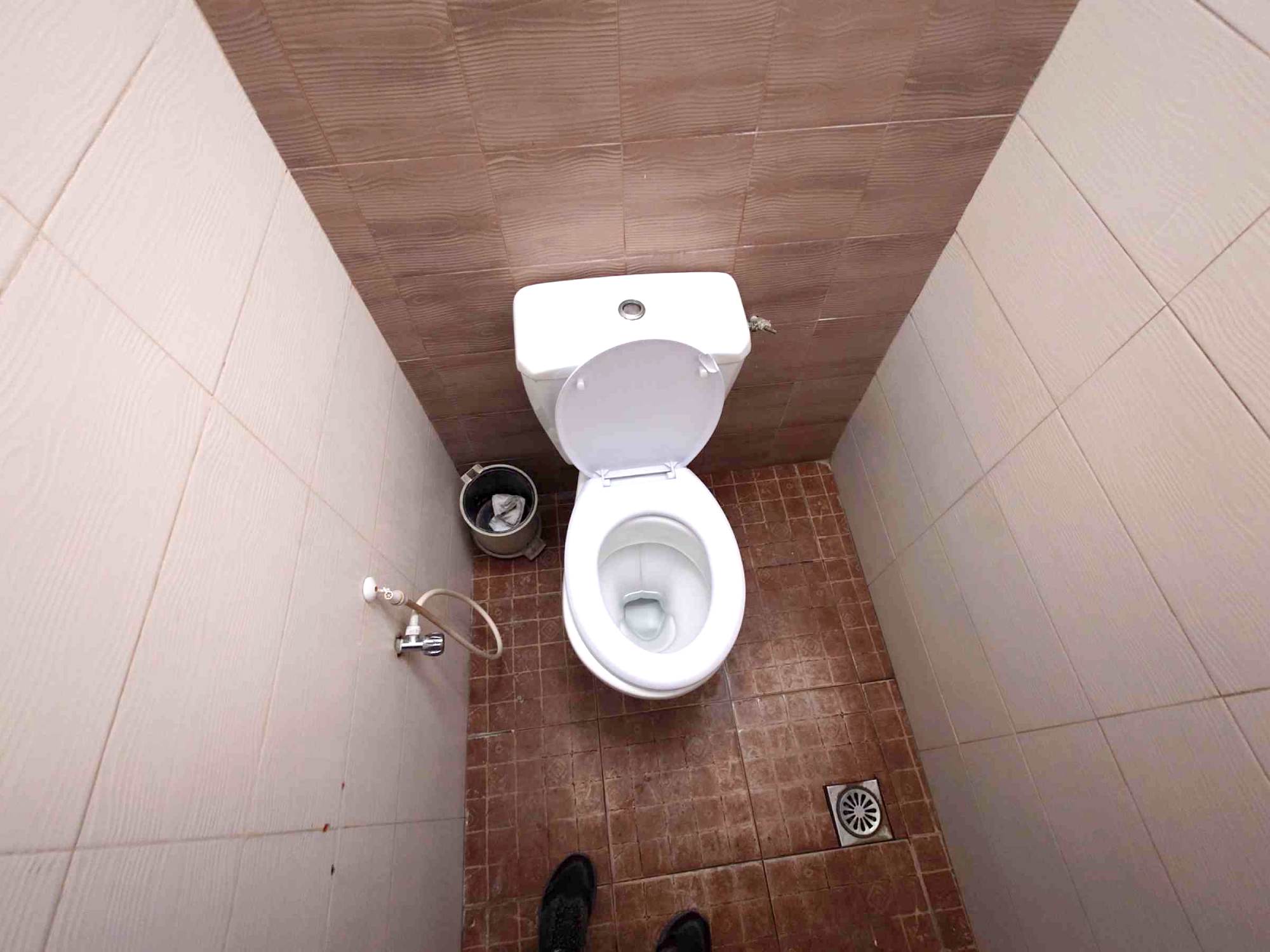
Typical (women’s) toilet in restaurants and cafes. Many would have a toilet paper holder on the wall, but it was empty most of the time.
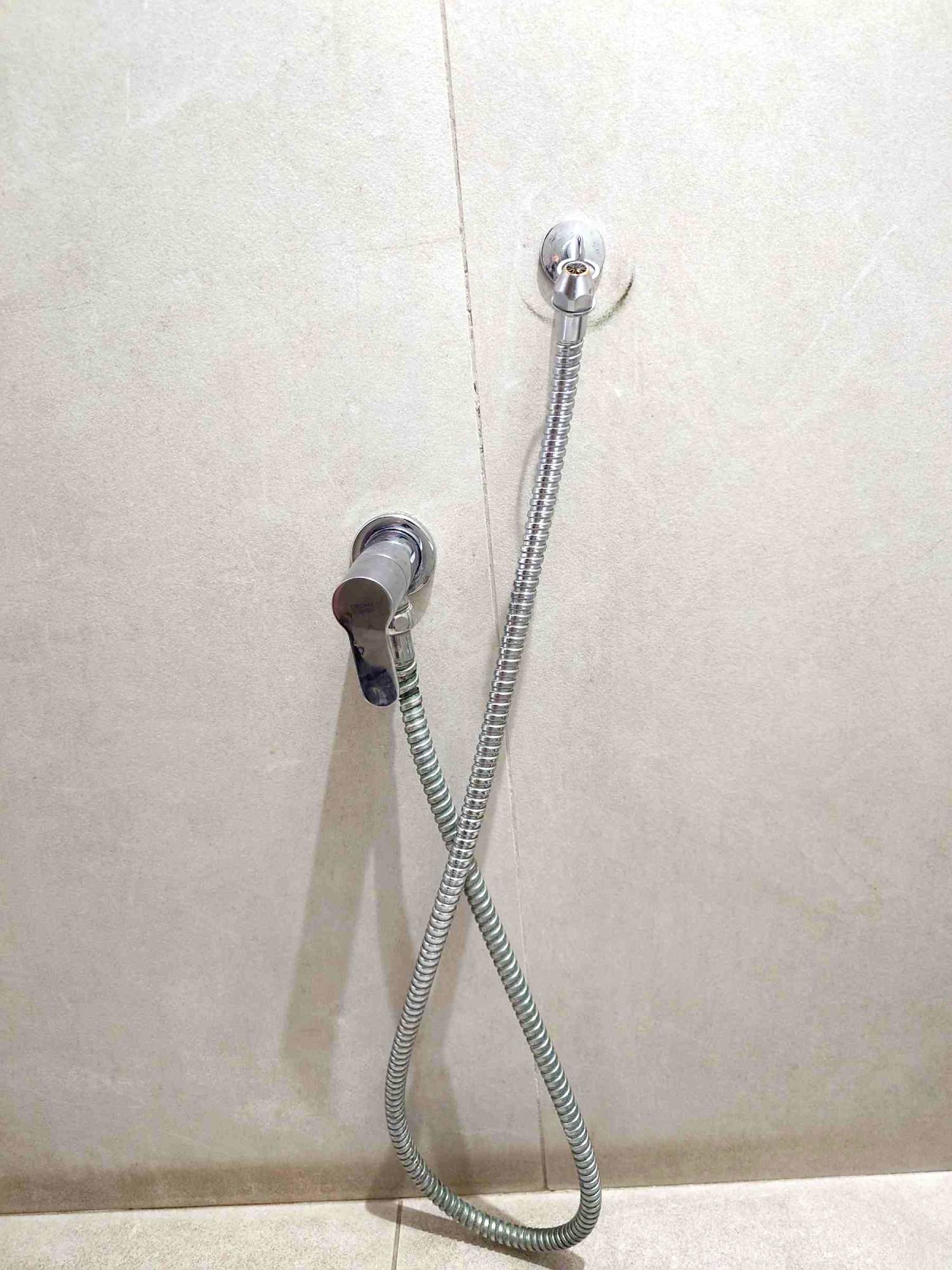
Tunisian version of a bidet. Existed in every toilet.
Please bear in mind, that we only stayed in Tunis (Tunisia’s capital) and we were only there for 3,5 days.
- Bring tissues/toilet paper and hand sanitizer if you’re not comfortable with showering your private parts.
- Don’t count on driving yourself unless you are prepared for driving in Mad Max: FuryRoad. If road guidelines are your bible and you cannot let go of control in a car, don’t enter a car in Tunis at all, not even a cab.
- But also, don’t necessarily count on walking a lot. Both heat and infrastructure do not make Tunis a good walkable city, so you are dependent on either driving yourself or using cabs. (Oh yeah, not that much public transport either.)
- Buy sunscreen before coming to Tunisia (it’s one of the few expensive items)
- In the neighbourhood Berges du Lac no alcoholis sold anywhere. Our hotel only offered mocktails, so we only had a beer or gin & tonic when leaving that area.
- There aren’t many supermarkets around, so if you want to buy in more familiar Western setting (for example to buy some sunscreen that you forgot to bring with you), check out whether a Carrefour is nearby.
Mediterranean - and yet
To be fair, depending on what you understand as “Africa” our title - “First time in Africa” - is actually a lie! In December 2019, we spent Christmas on Teneriffe, which arguably kinda is part of Africa. For the sake of our title, let’s say it is Europe, though.
One aspect of Tunis that really stuck out to us was how similar it felt to mediterranean cities on the European side - and then totally not! Tunis is very tourist friendly in regards to being rather open for Western/non muslim culture. On top of that, you get pretty far if you know some French as that is still more or less commonly spoken.
Apart from Arabic signs, regular calls to prayer from minarets and many more bumps and dents in the cars, one big difference we noted is linked to this:
When we were in Lisbon, Portugal.
When were in the Camargue, France.
As distinct white tourists, we experienced more distance and less eagerness to engage with us from the locals. Everyone was friendly and we did not have any bad or frightening experiences! People that wanted to sell (cab drivers at the airport, market stall sellers, etc) would also take initiative to talk to us and constantly ask whether we were from the US, but apart from that the locals kept more to themselves. On top of that, we had a higher rate of rejections when asking people whether we could take their photo than we’re used to.
This obviously colored our street photography, as we were more hesitant and less risk taking when taking photos of people to not cross boundaries. But oh, so many great possibilities for street photography!
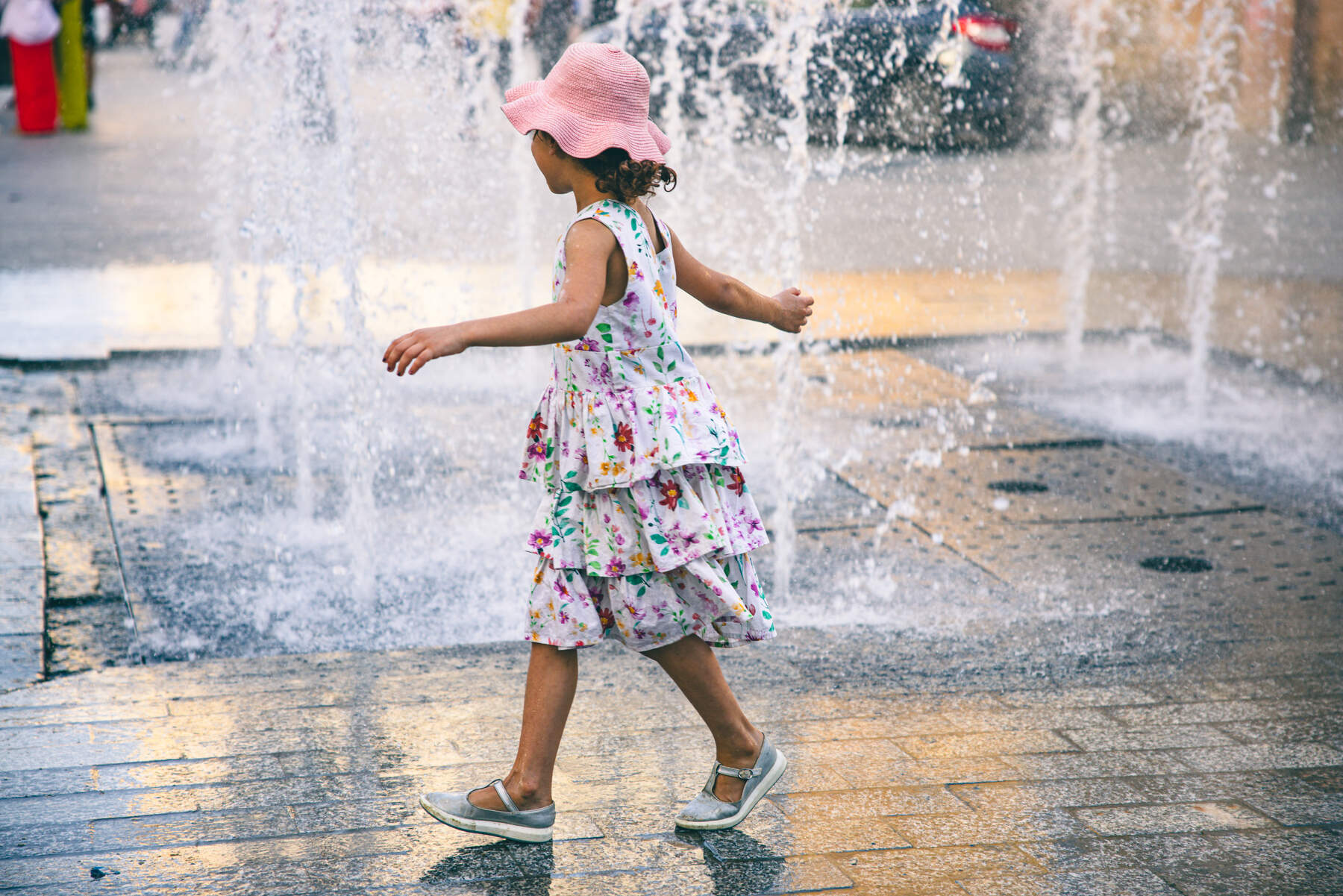
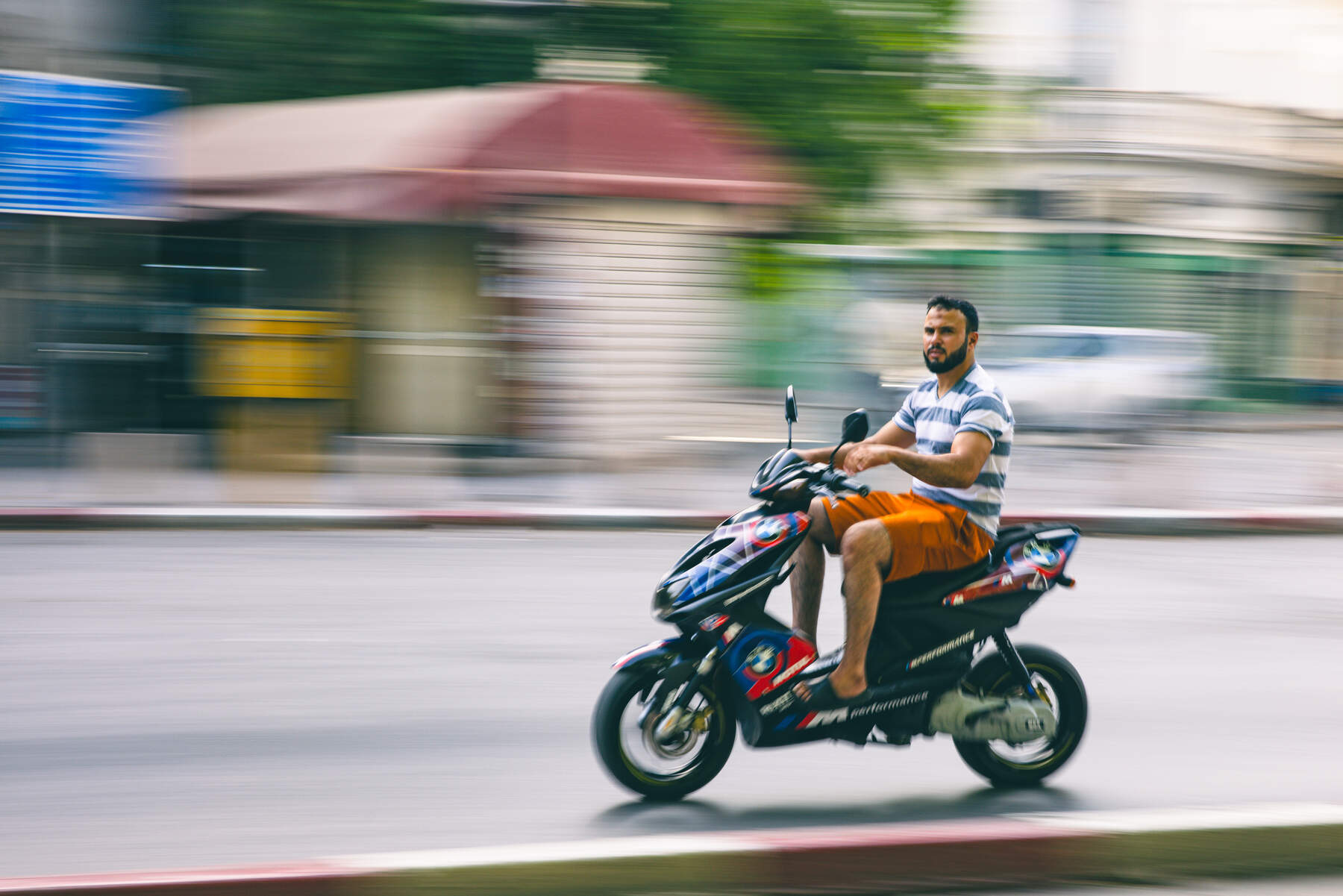
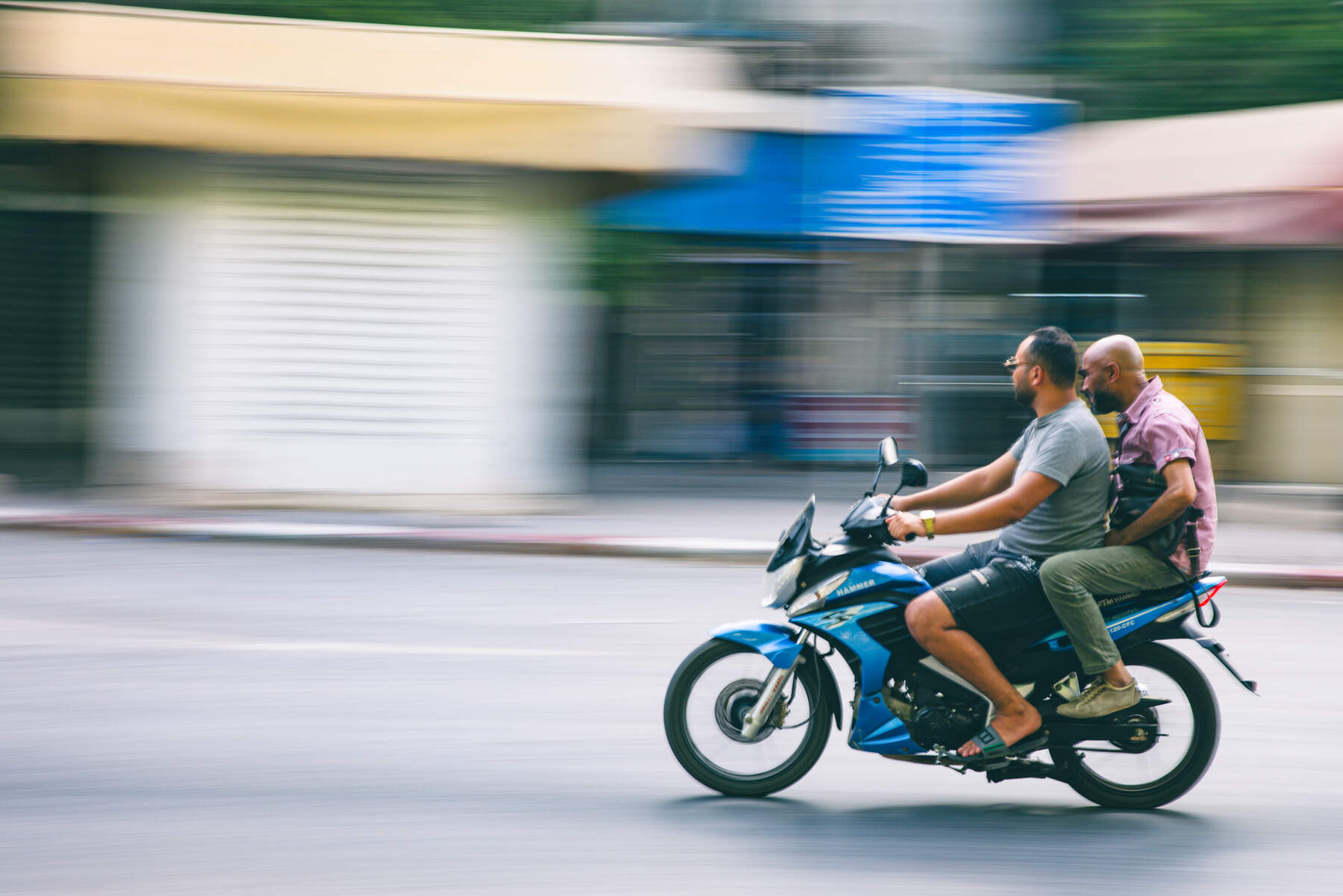
There’s a great variation in car condition in the city. We’ve seen new, undented, shiny cars, but most vehicles bore clear marks of physical altercations with other participants of road traffic so to say. That also goes for cabs who don’t necessarily offer seat belts for the backrow or have blinking icons behind the wheel, desperately asking the driver to check oil.
Personally, when entering a cab (always from the right side, as the left door often was locked, I assume to prevent customers to just throw themselves into traffic), I always focused on looking out the side window and enjoy the view and warm breeze from either the open window or the (rarely) AC - that was a good choice to keep my sanity when being navigated through the traffic of the city.
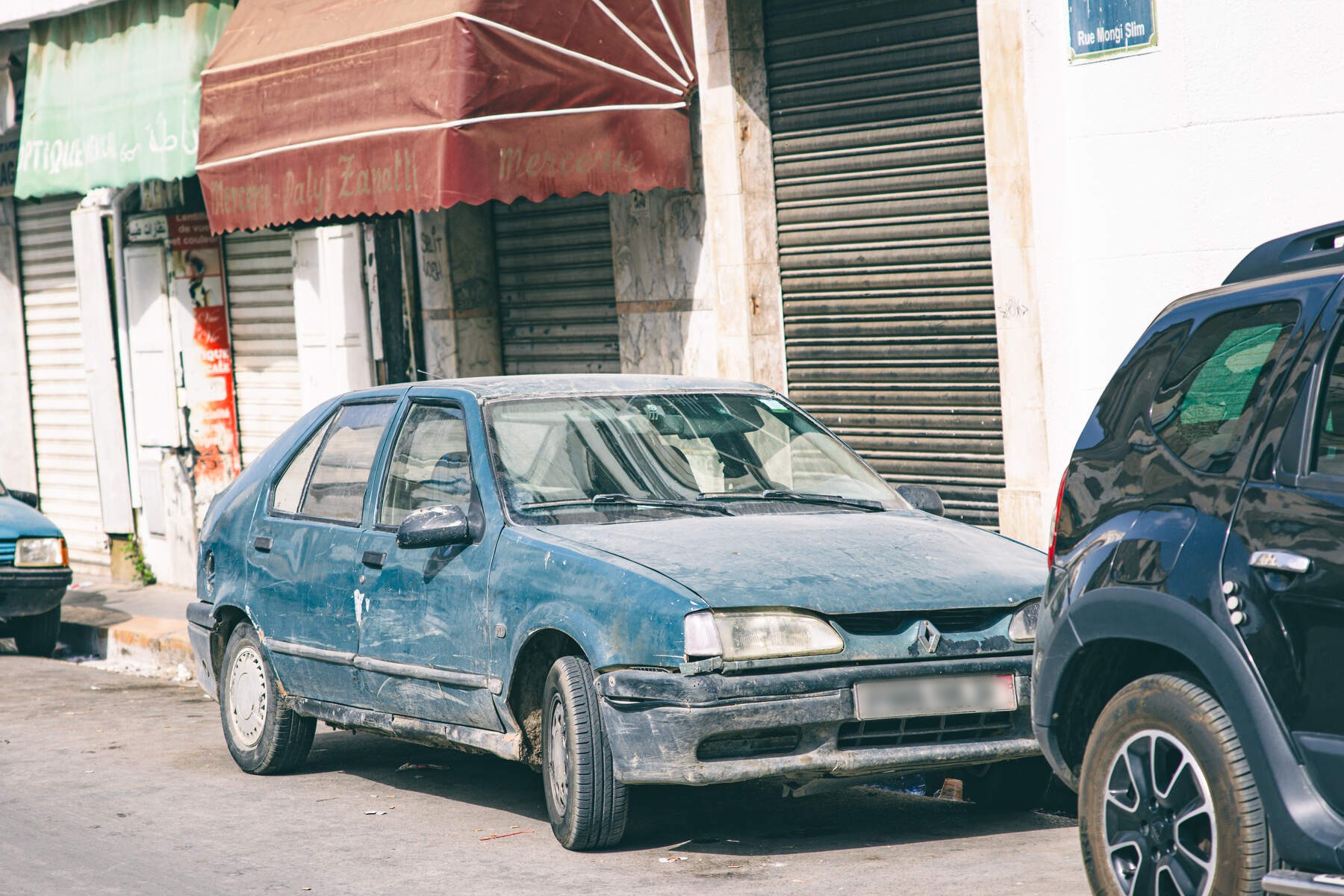
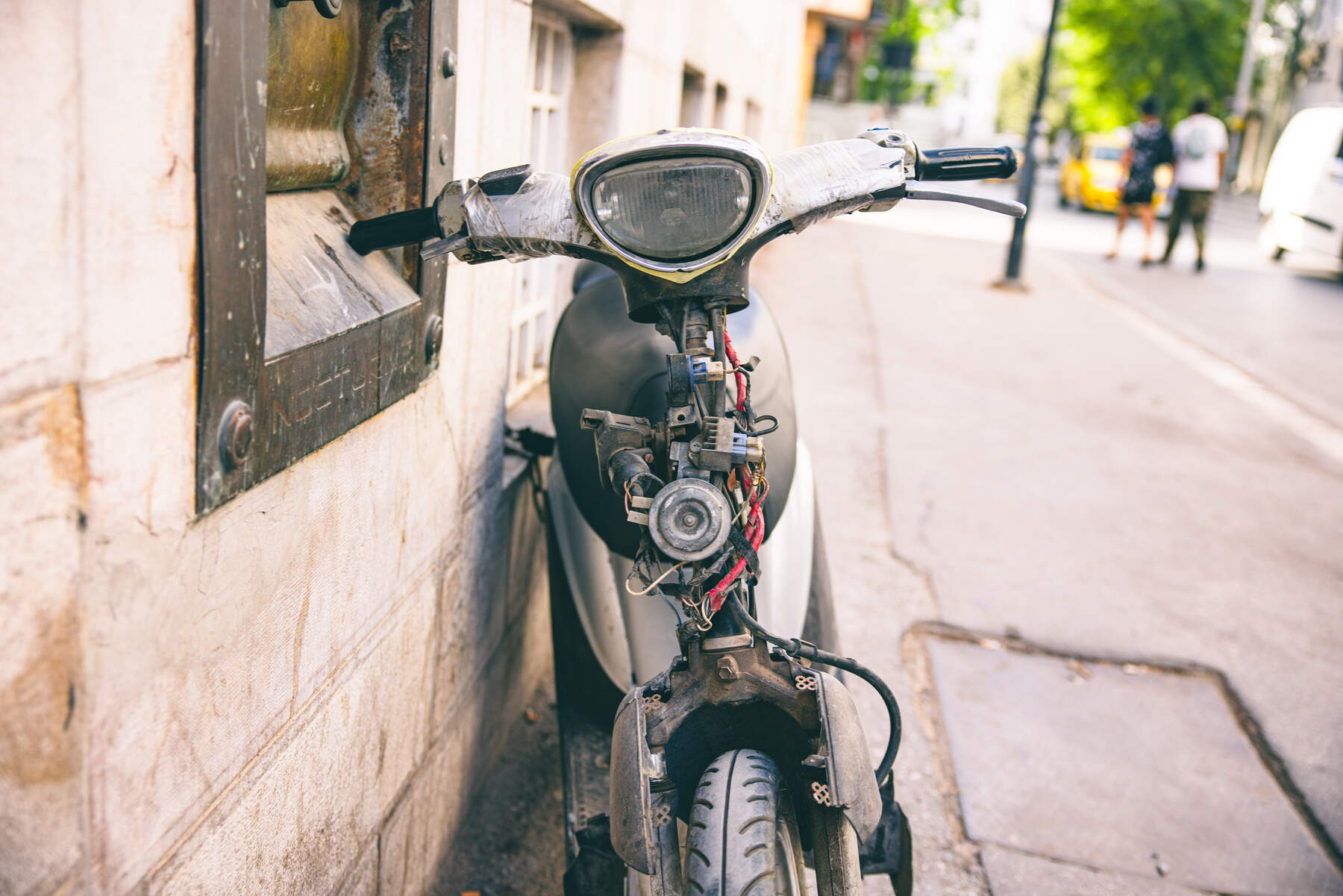
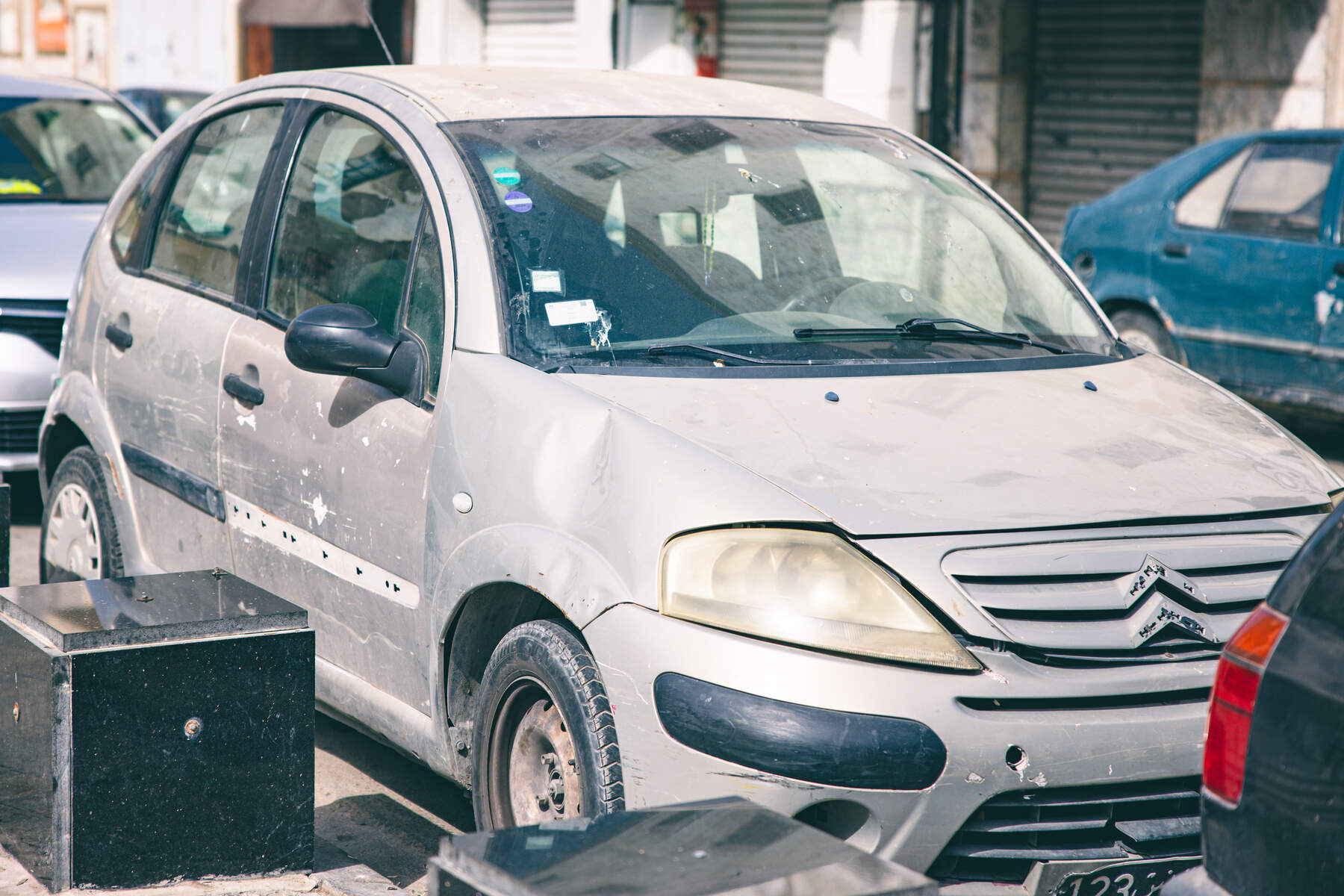
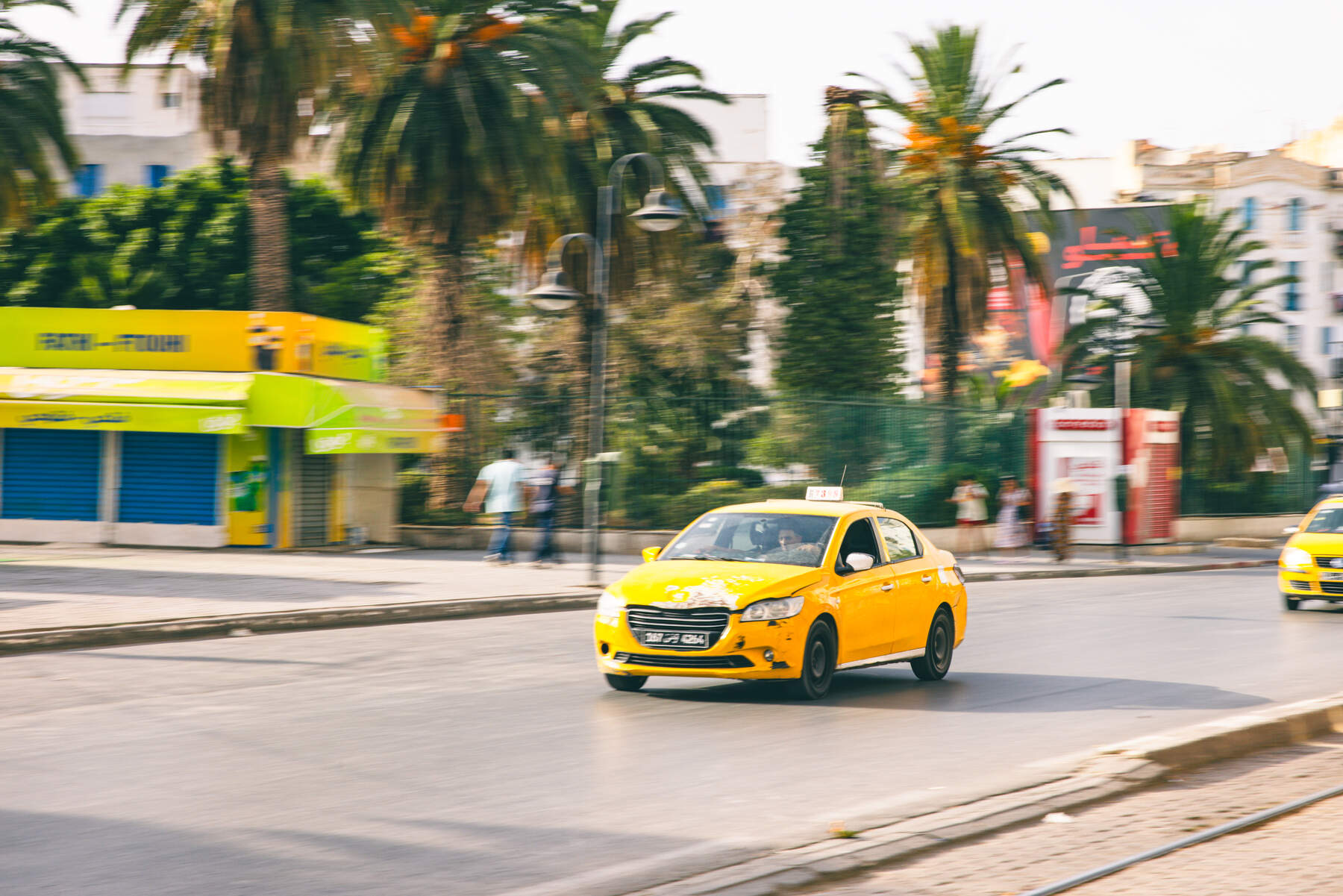
Medina - Shade and souvenirs
The Medina is a very special area in Tunis, and probably the one that made the biggest impression on us. Actually, it has been a UNESCO World Heritage Site since 1979. What characterizes this part of the city is the labyrinth of many small alleyways that like a spiderweb reach out throughout. The alleyways are narrow and the building built quite high, which together with a lot different forms of adhoc roofs makes sure that they’re always sheltered from the harsh sunlight.
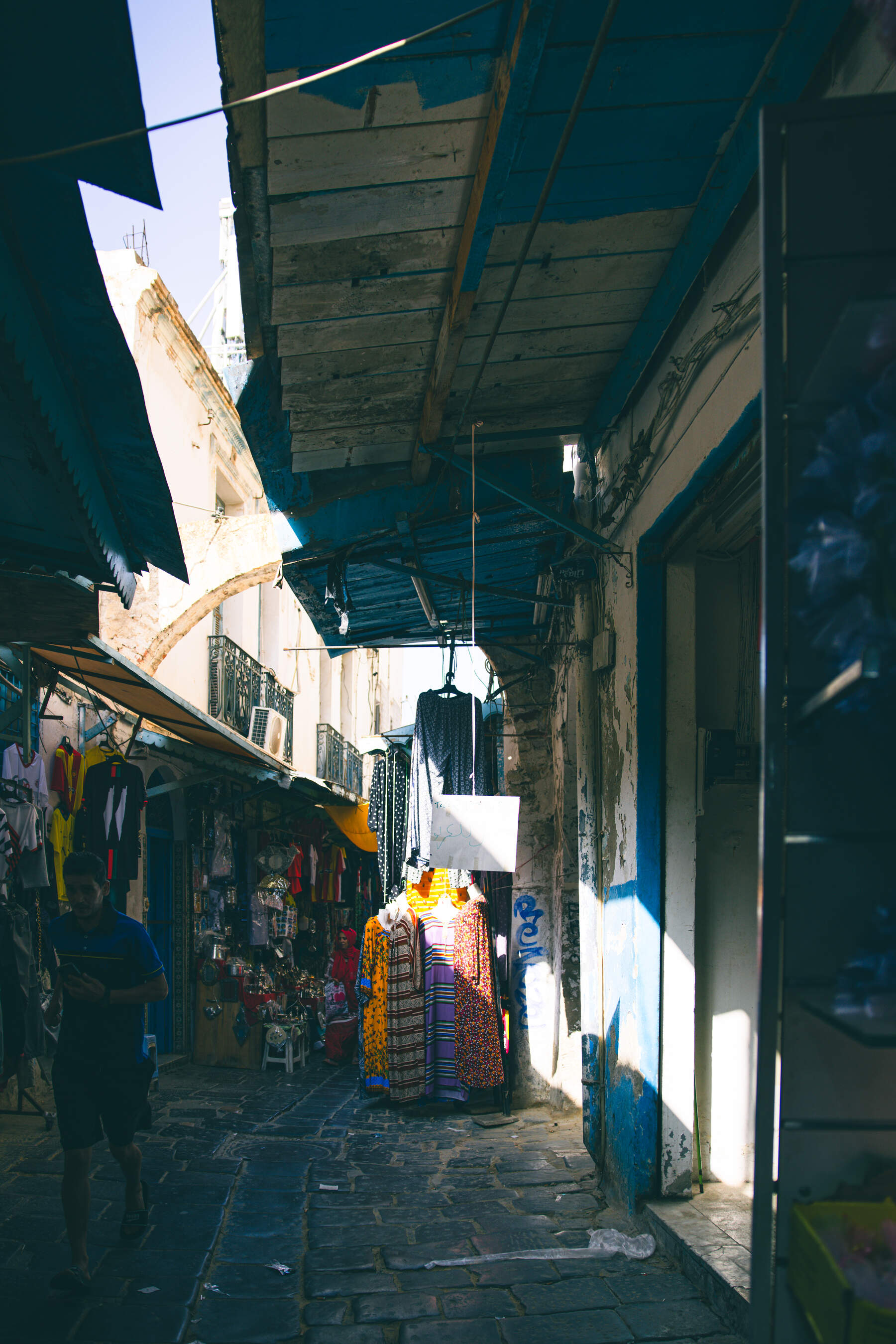
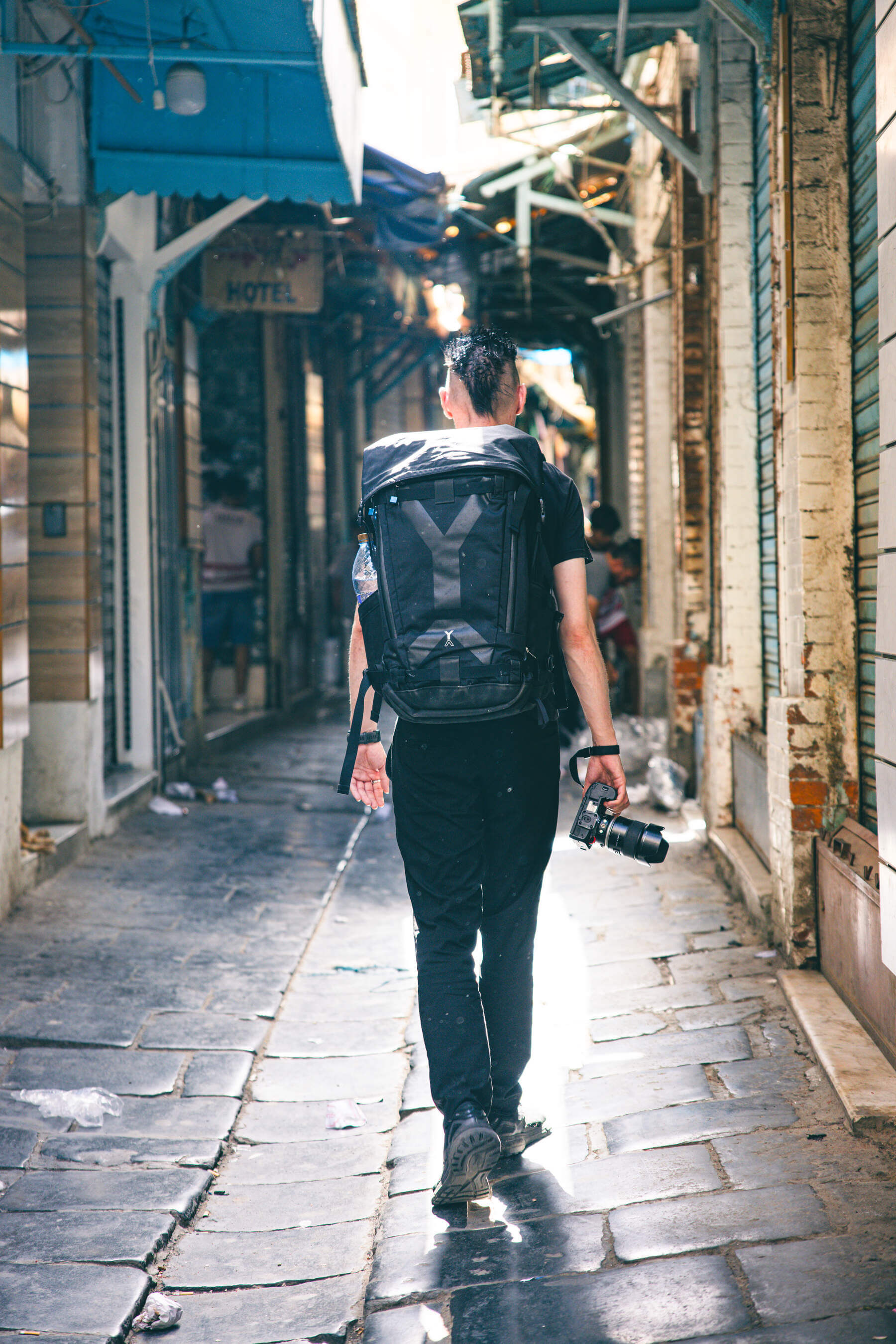
During the day, all the shops connected to the alleys are wide open and spill out their goods, their owners often sitting outside and sharply observing everyone going by, ready to spring into action as soon as anyone’s eyes rest on one of their products for more than 0,1 seconds. As soon as they spot a potential customer, they start shouting, guessing nationalities and languages, praising their wares. Luckily, that’s mostly it - they don’t tend to run after or touch anyone, so in that regard the Medina felt safe.
The place is packed, though. With all the stalls there is not much room left in the middle, and everyone nagivating the labyrinth in either direction is pushing past each other at different speeds and sometimes locals with small wagons loaded with snacks or water bottles create traffic hazards.
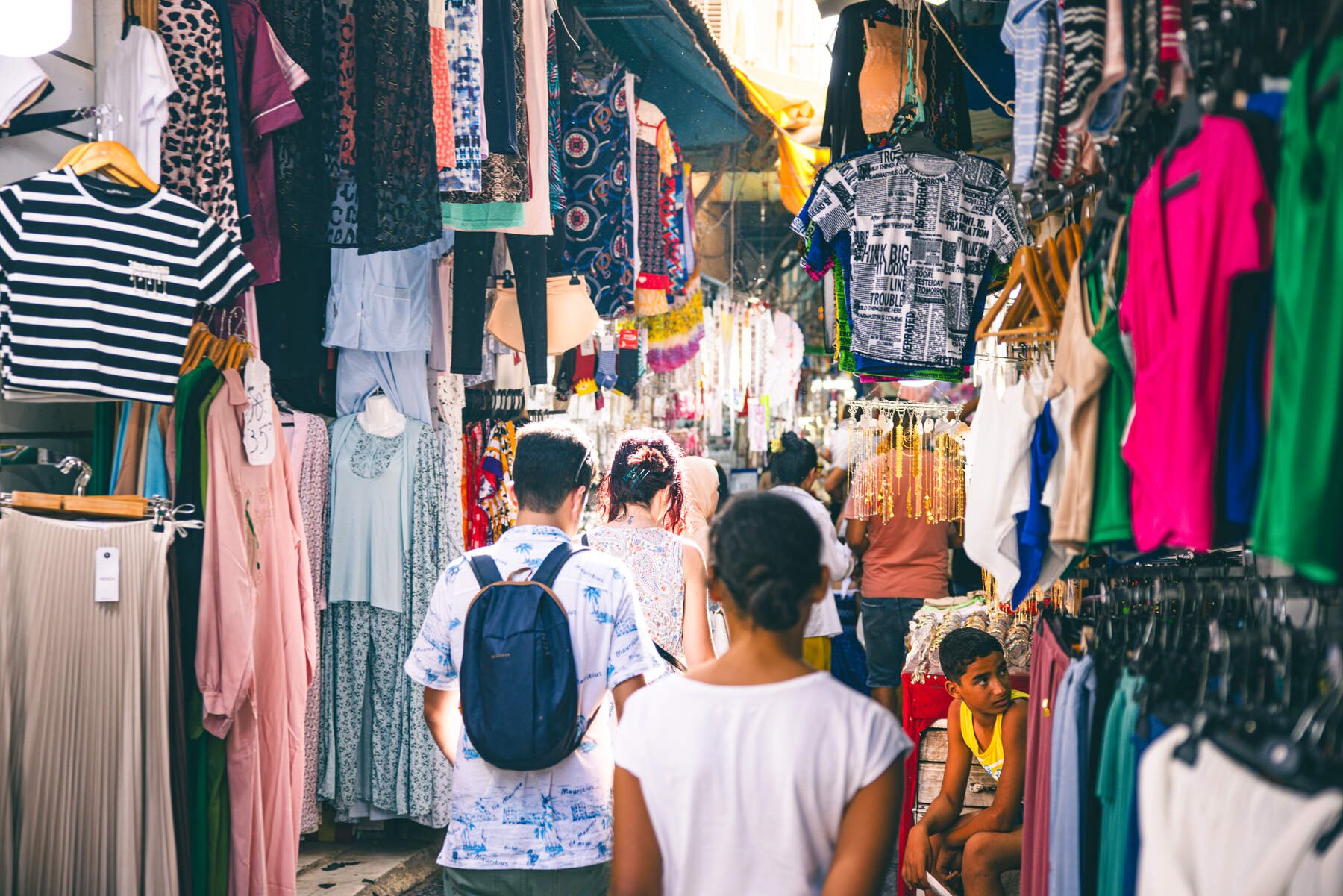
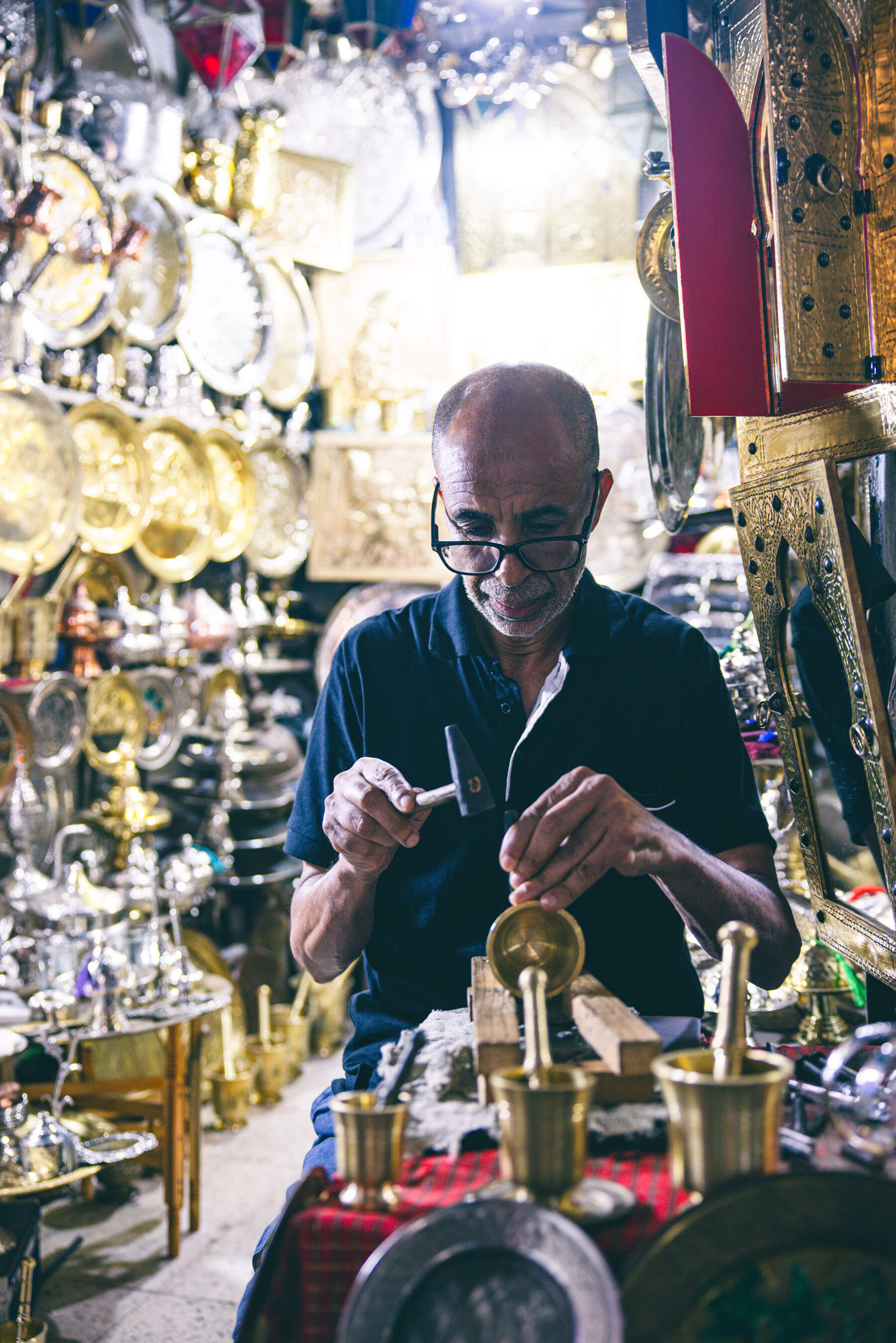
One of the few people who nodded approval when we pointed at the camera.
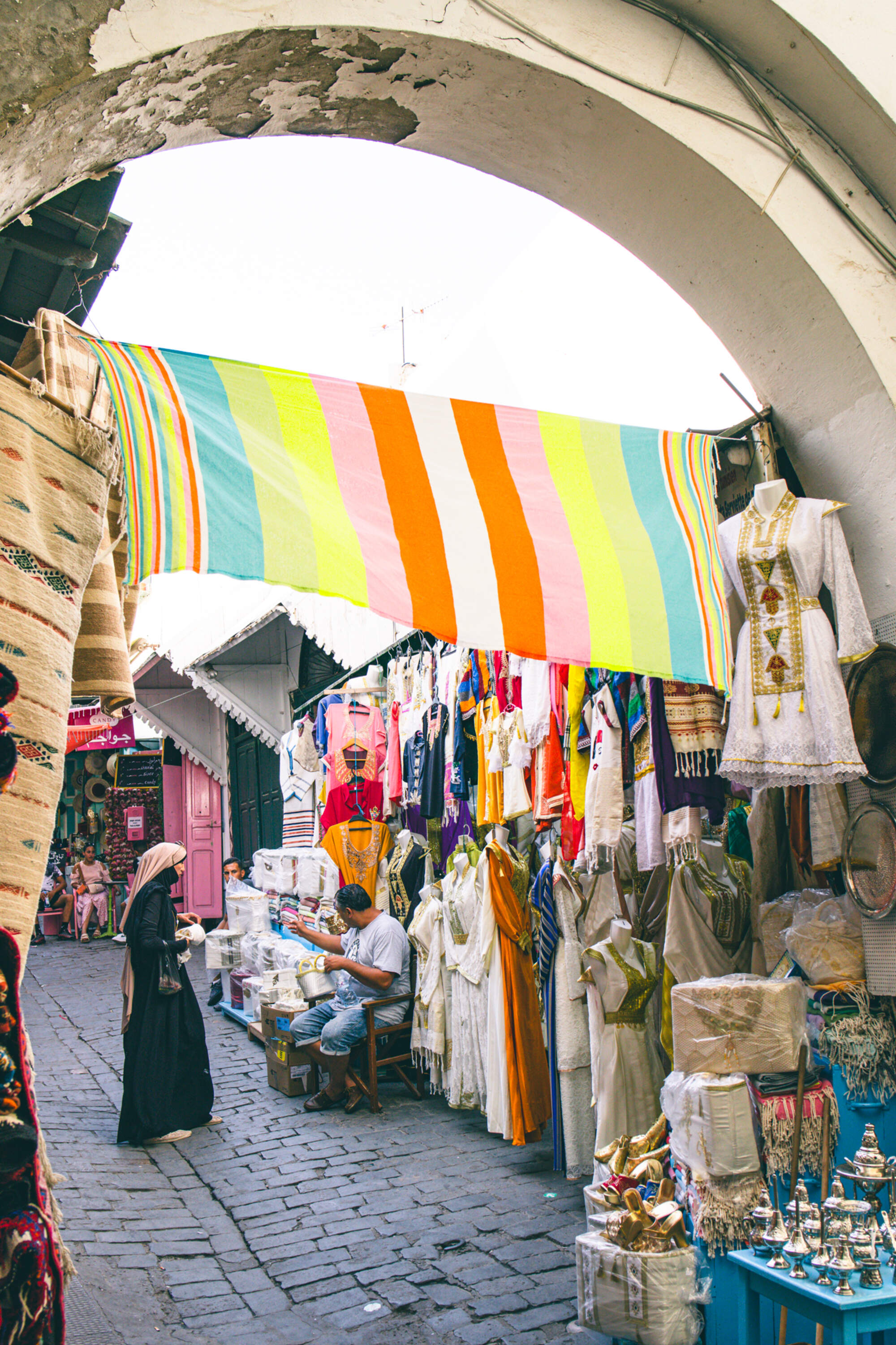
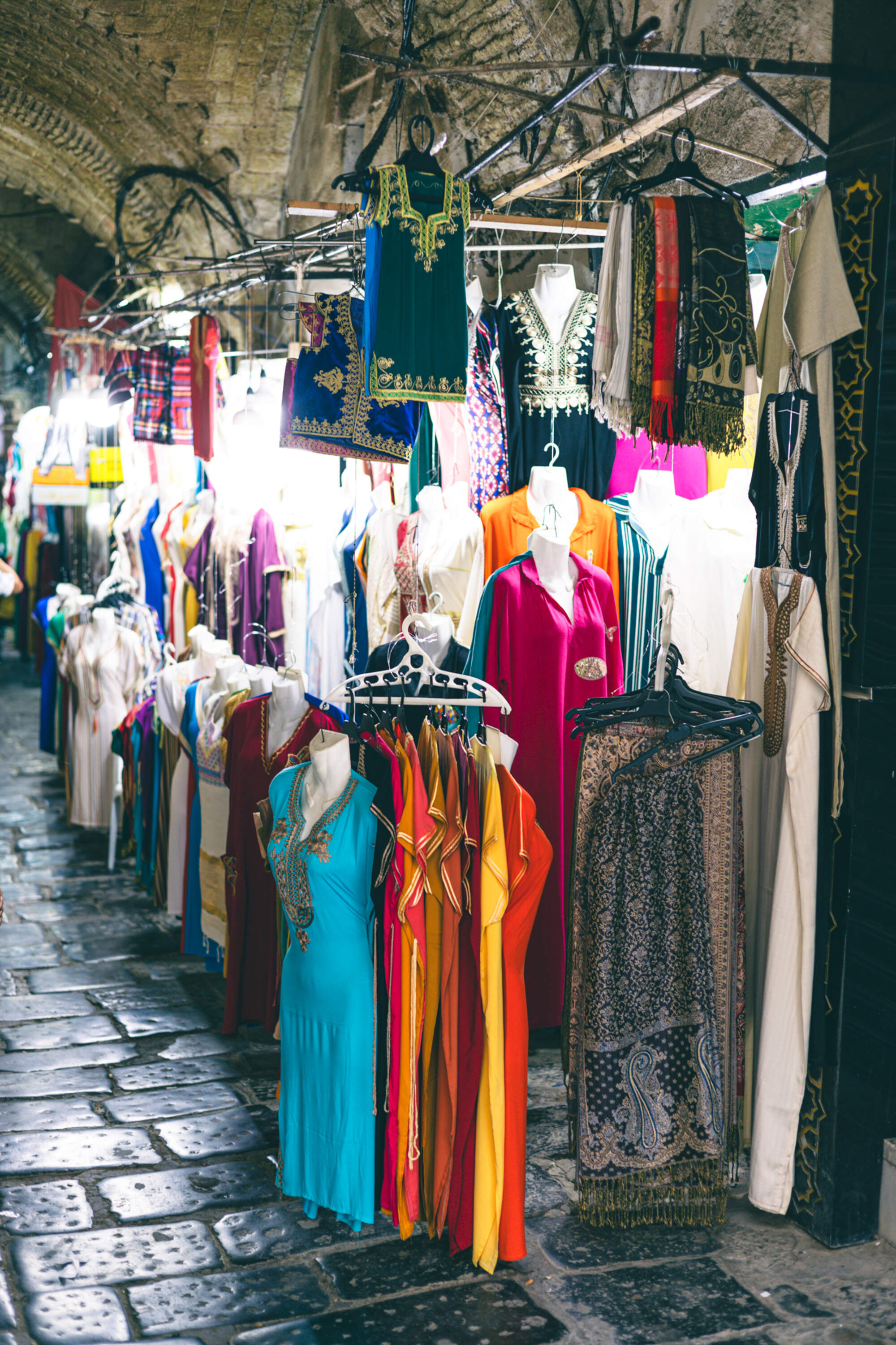
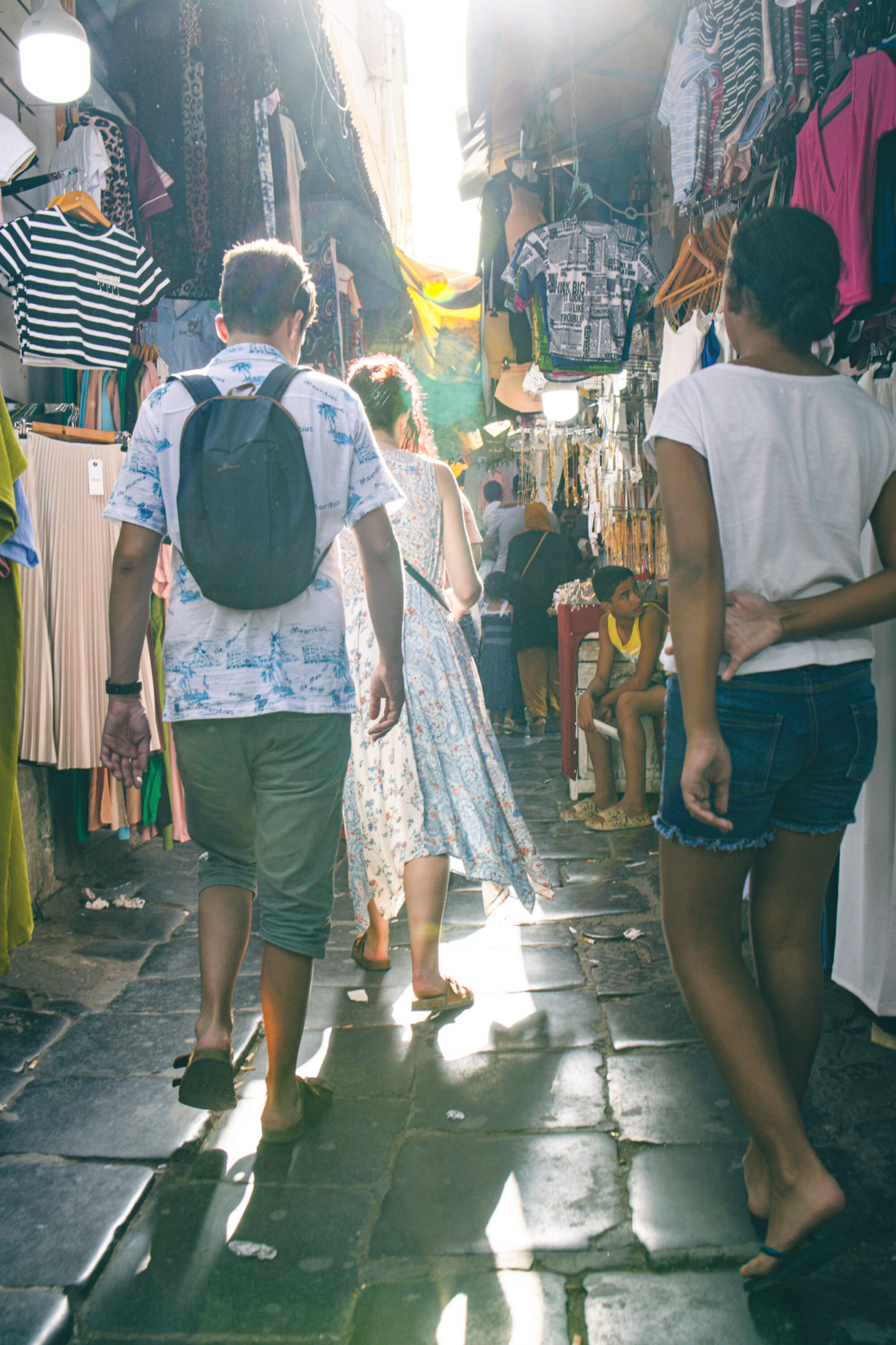
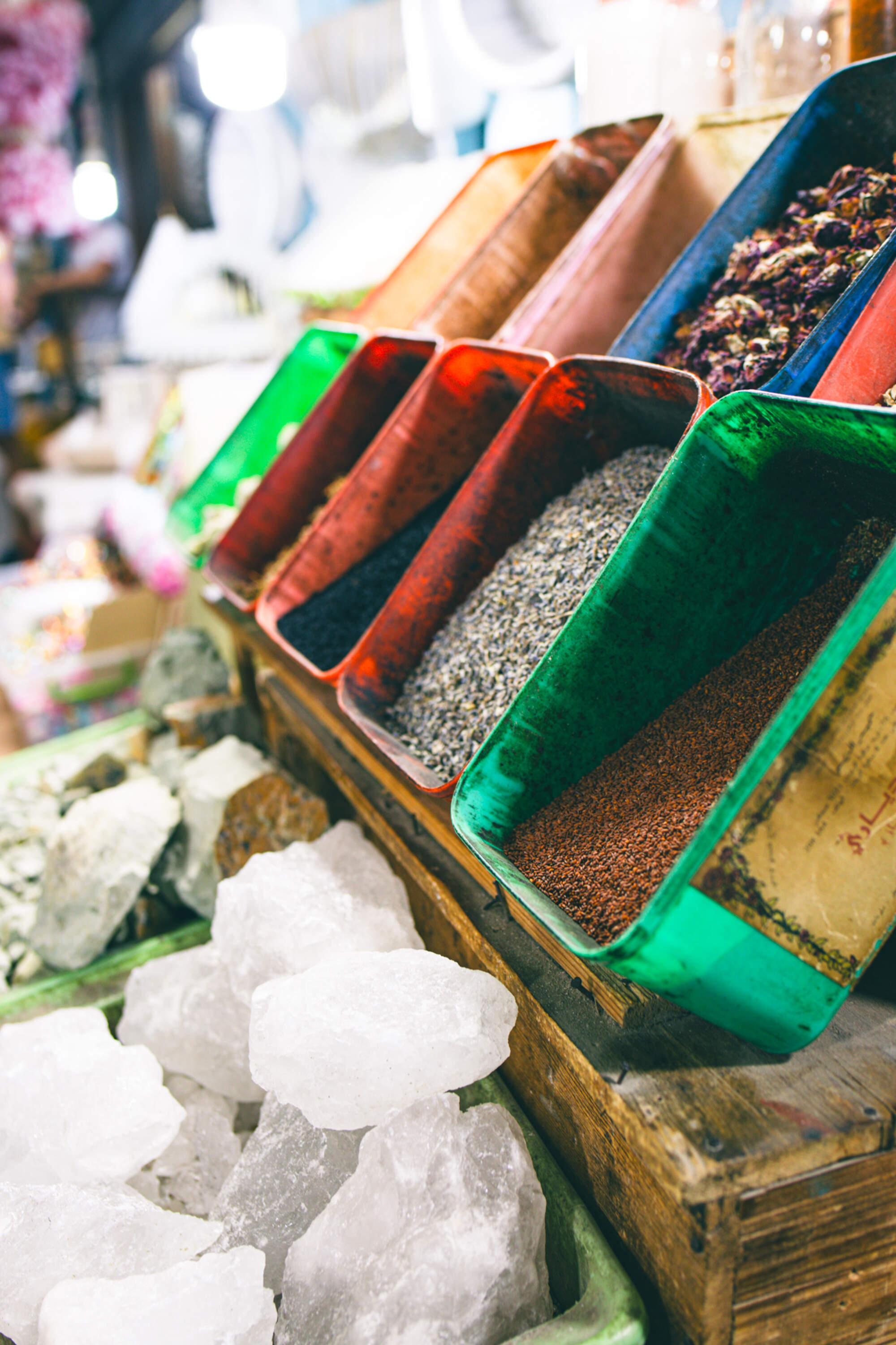
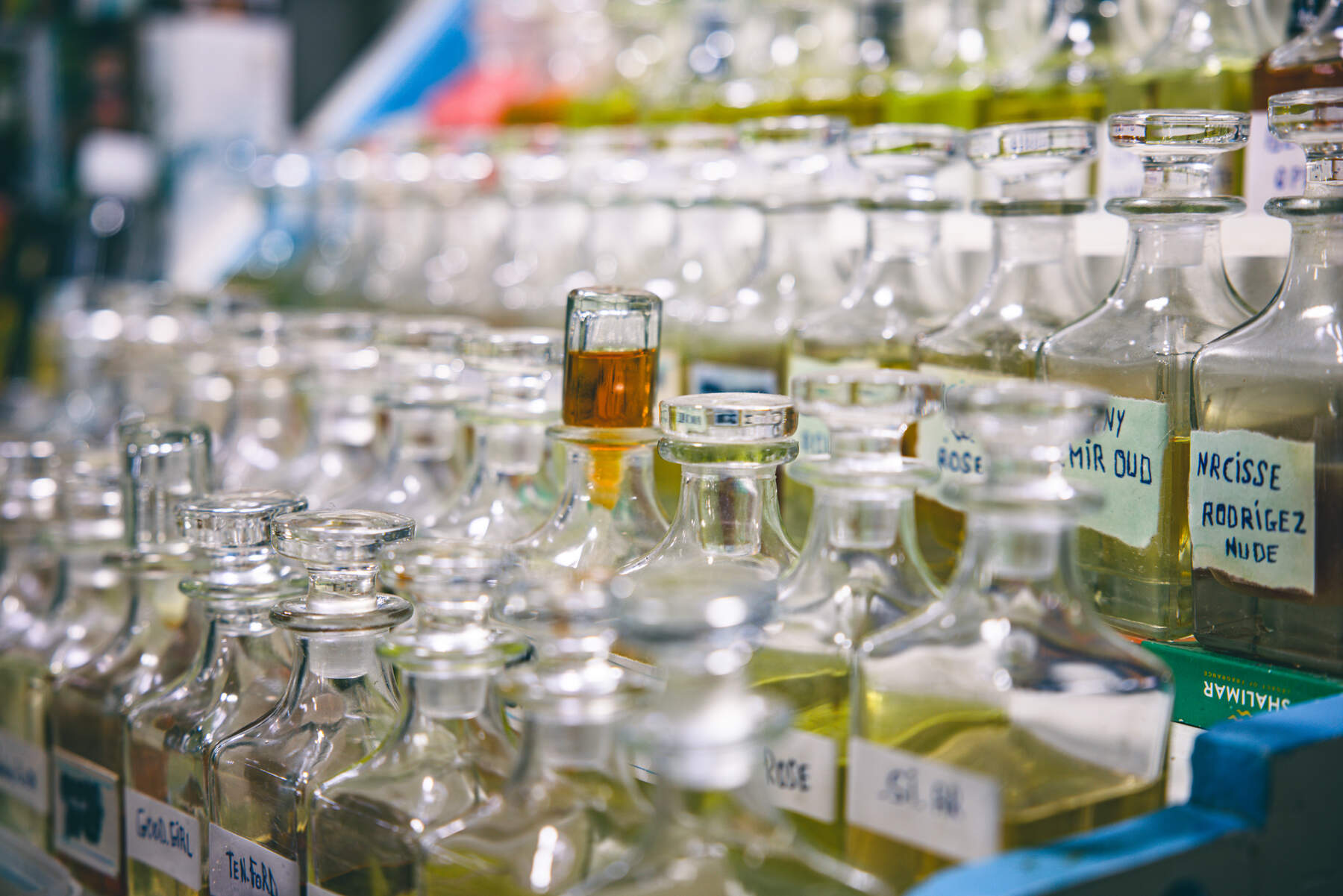
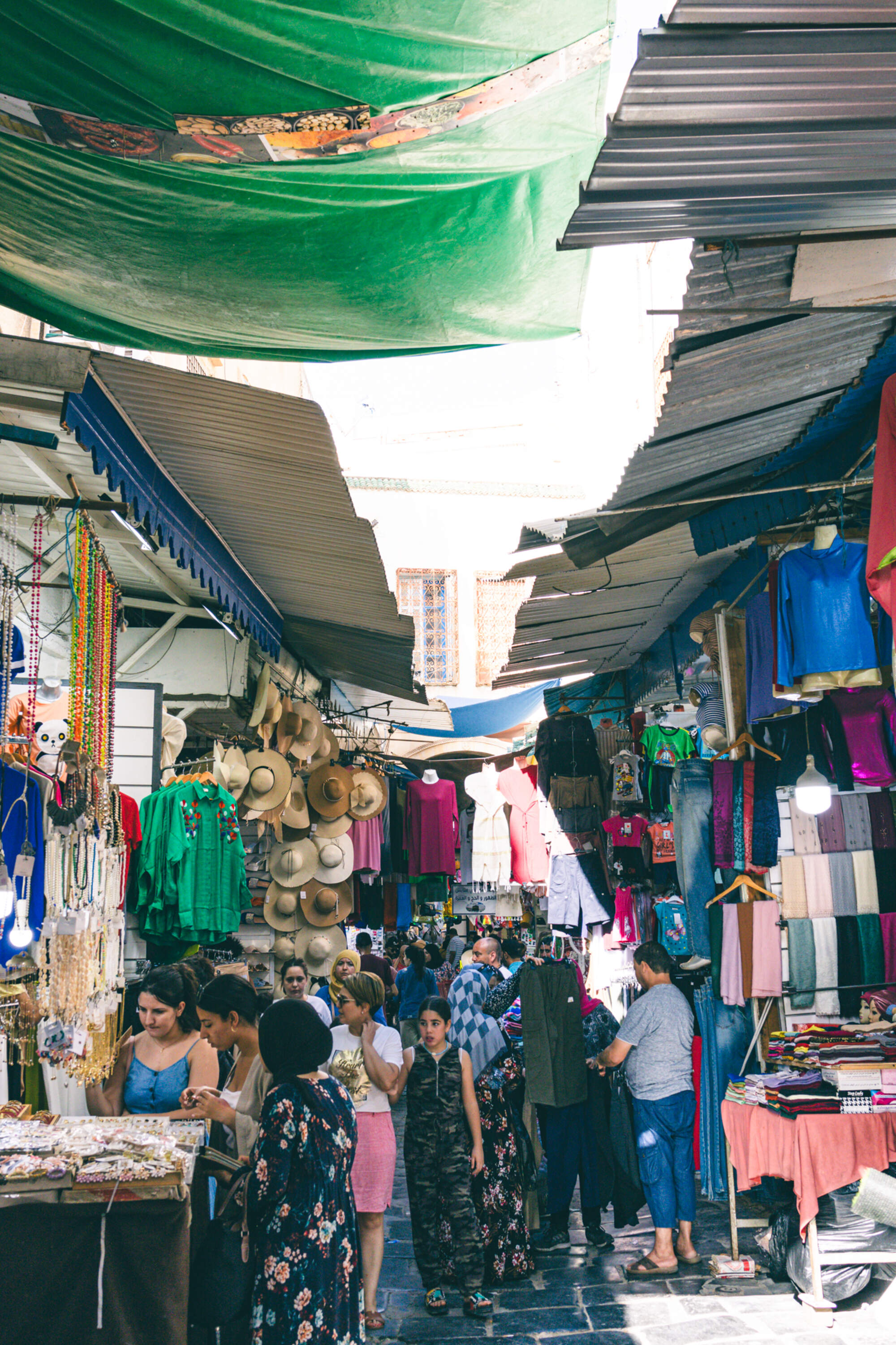
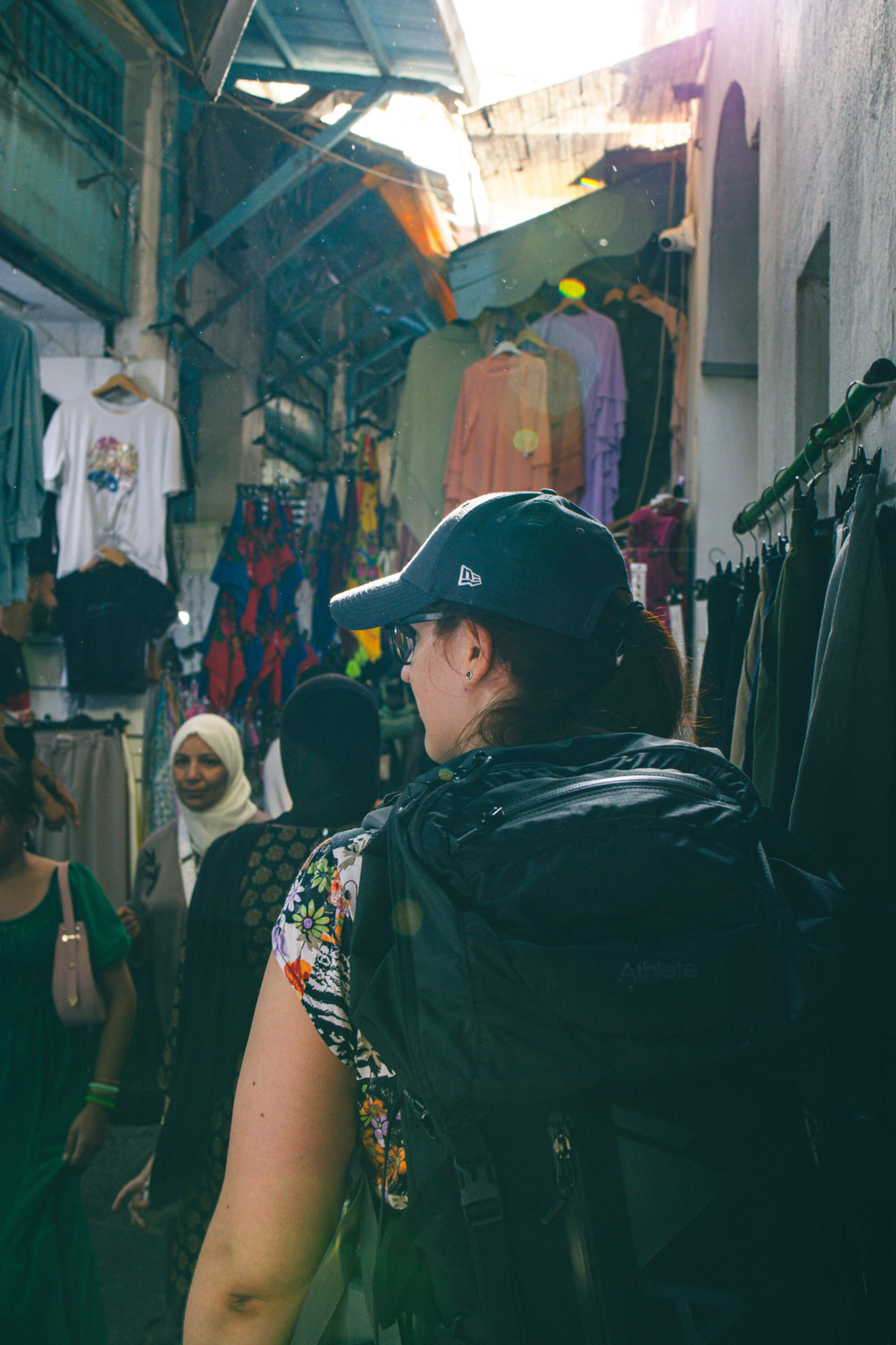
The area is quite big and apparently, different alleys offer different wares. The main paths are quite tourist focused with lots of repeating items like local clothes, spices and other schnickschnack. There are also alleys with only jewellery or men’s and women’s items respectively. It is easy to get lost, so keep an eye on that map!
We also wandered the streets on a Sunday and at night to get the opposite vibe of the bustling market area. During those times, all stalls and products are locked away, and the suddenly wider feeling alleys are characterized by emptiness, trash and stray cats.
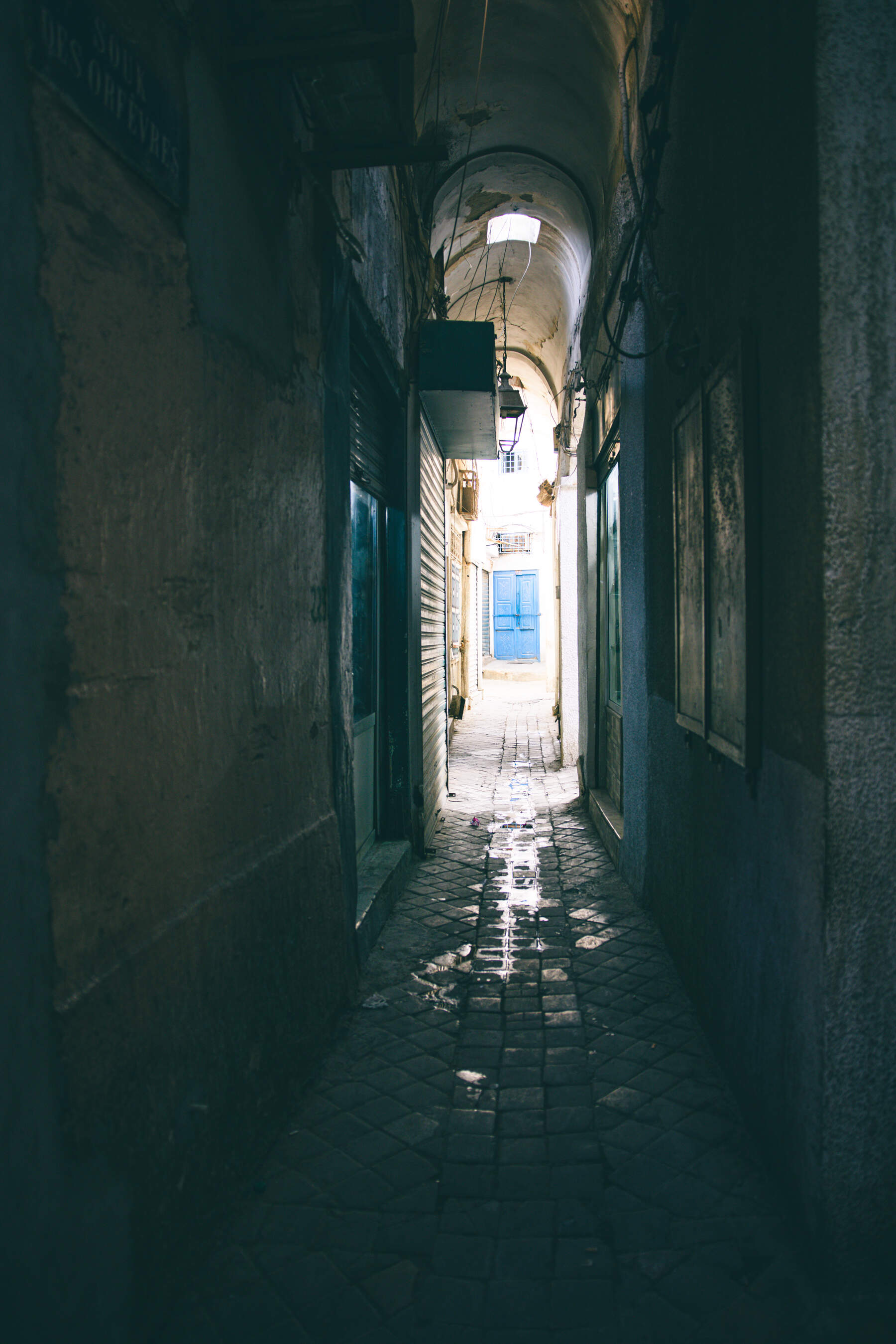
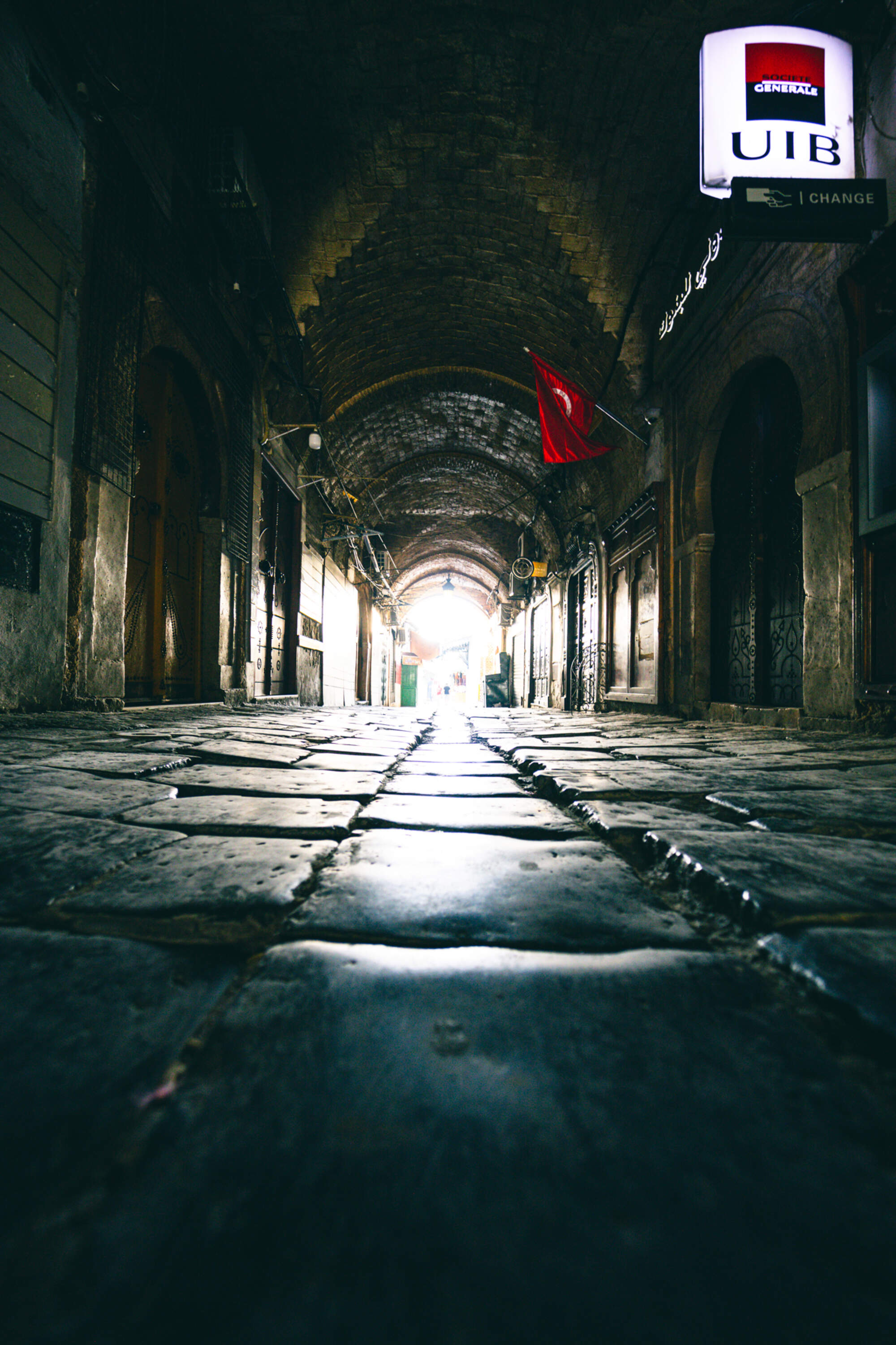
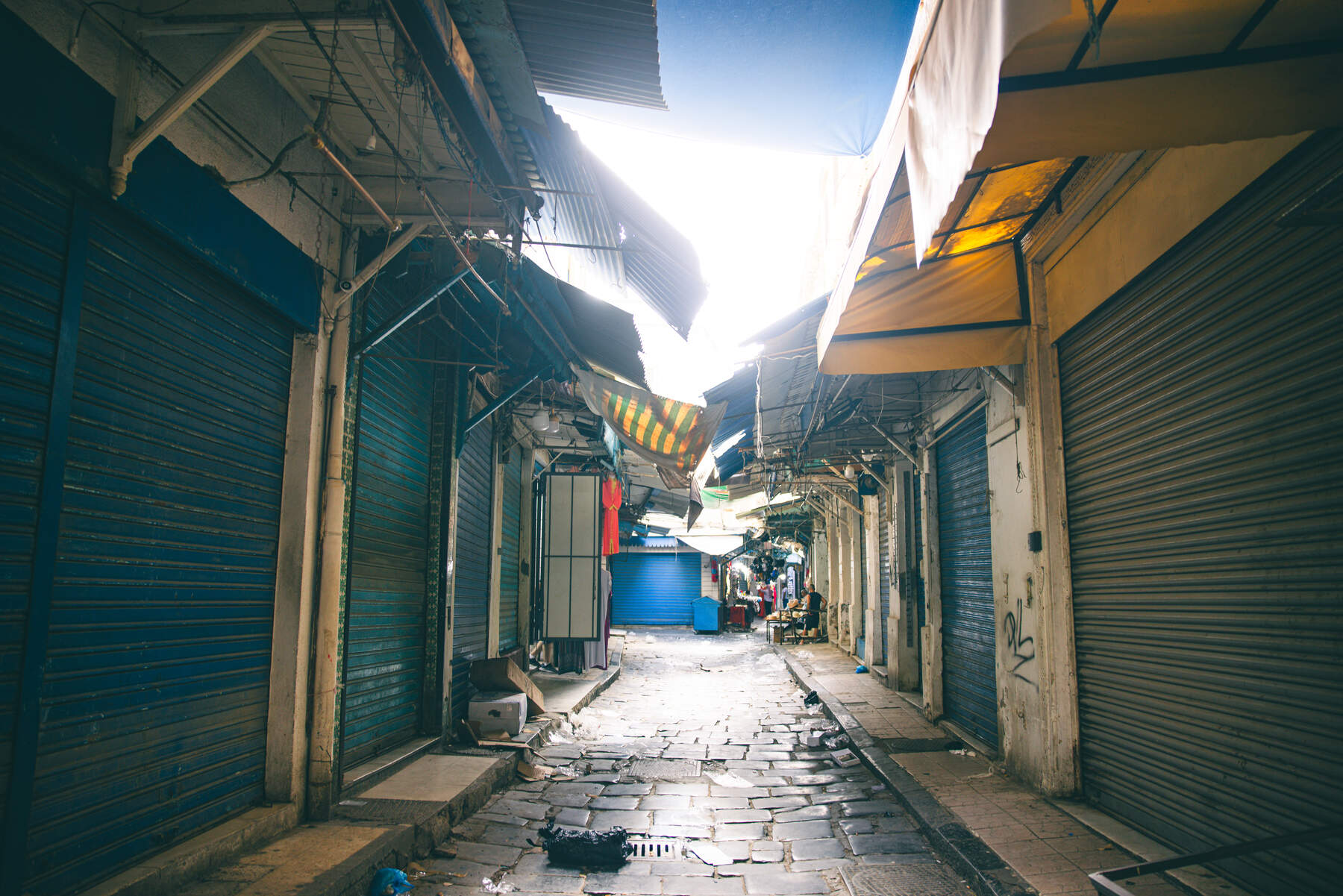
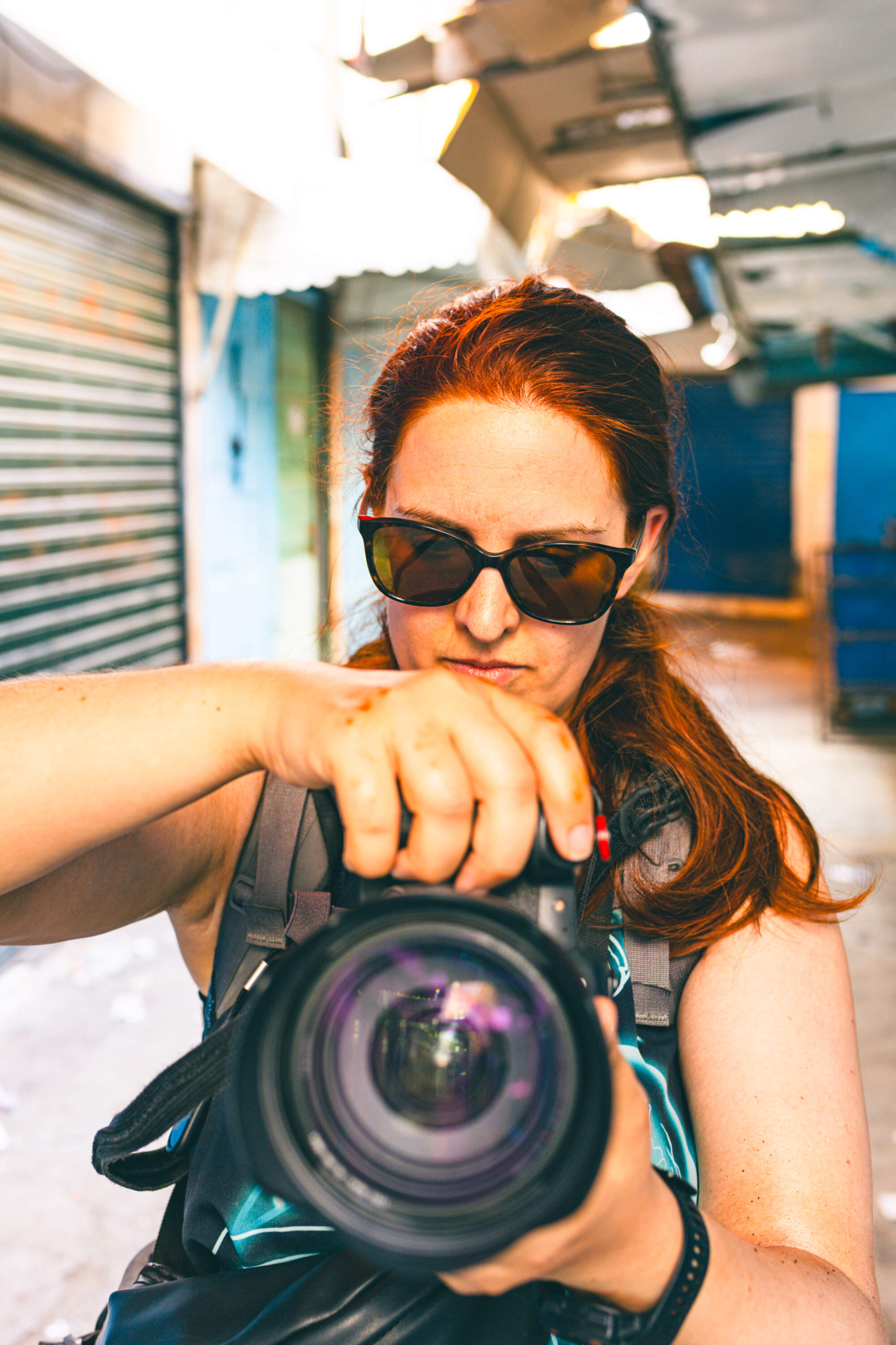
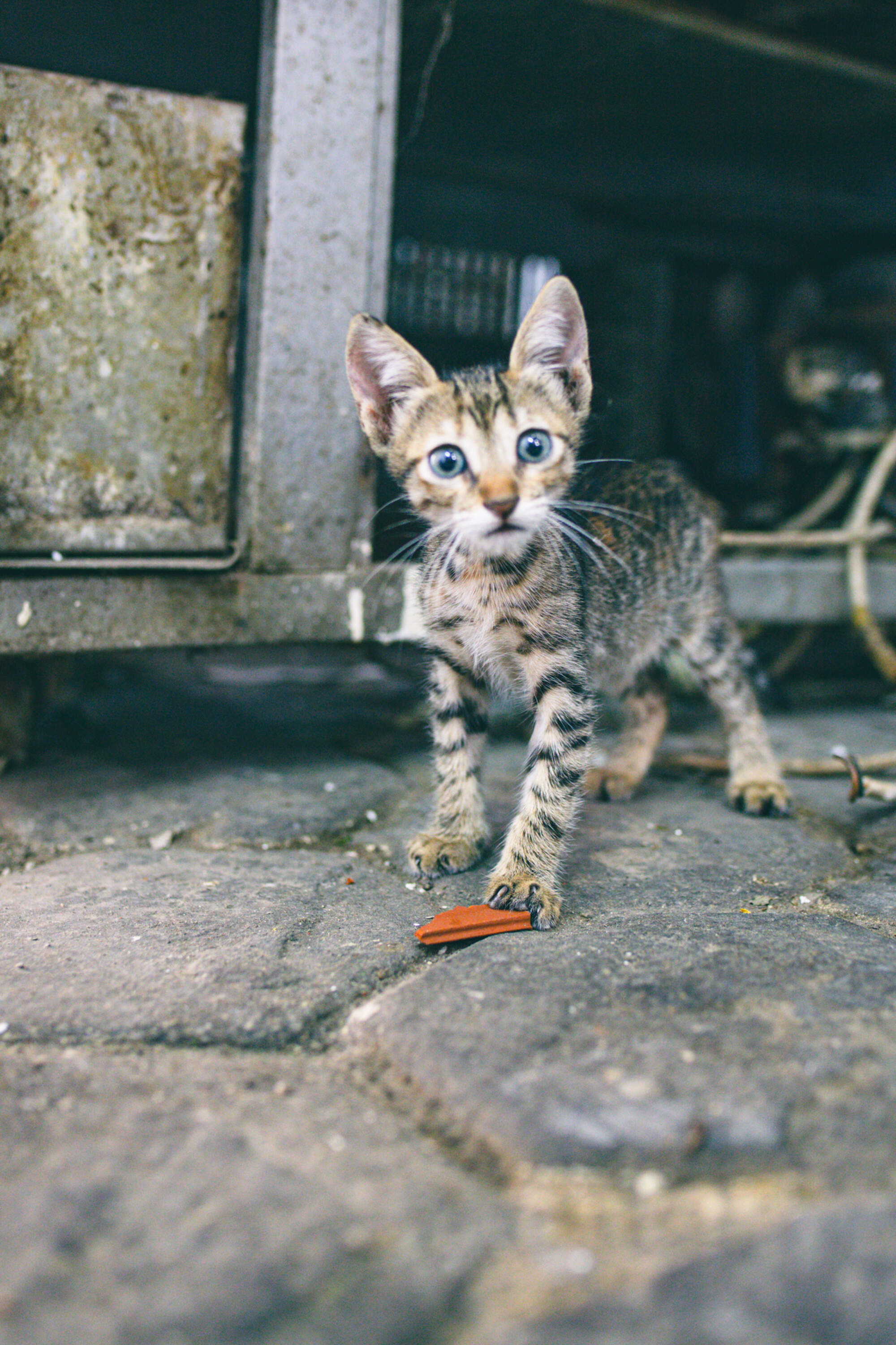
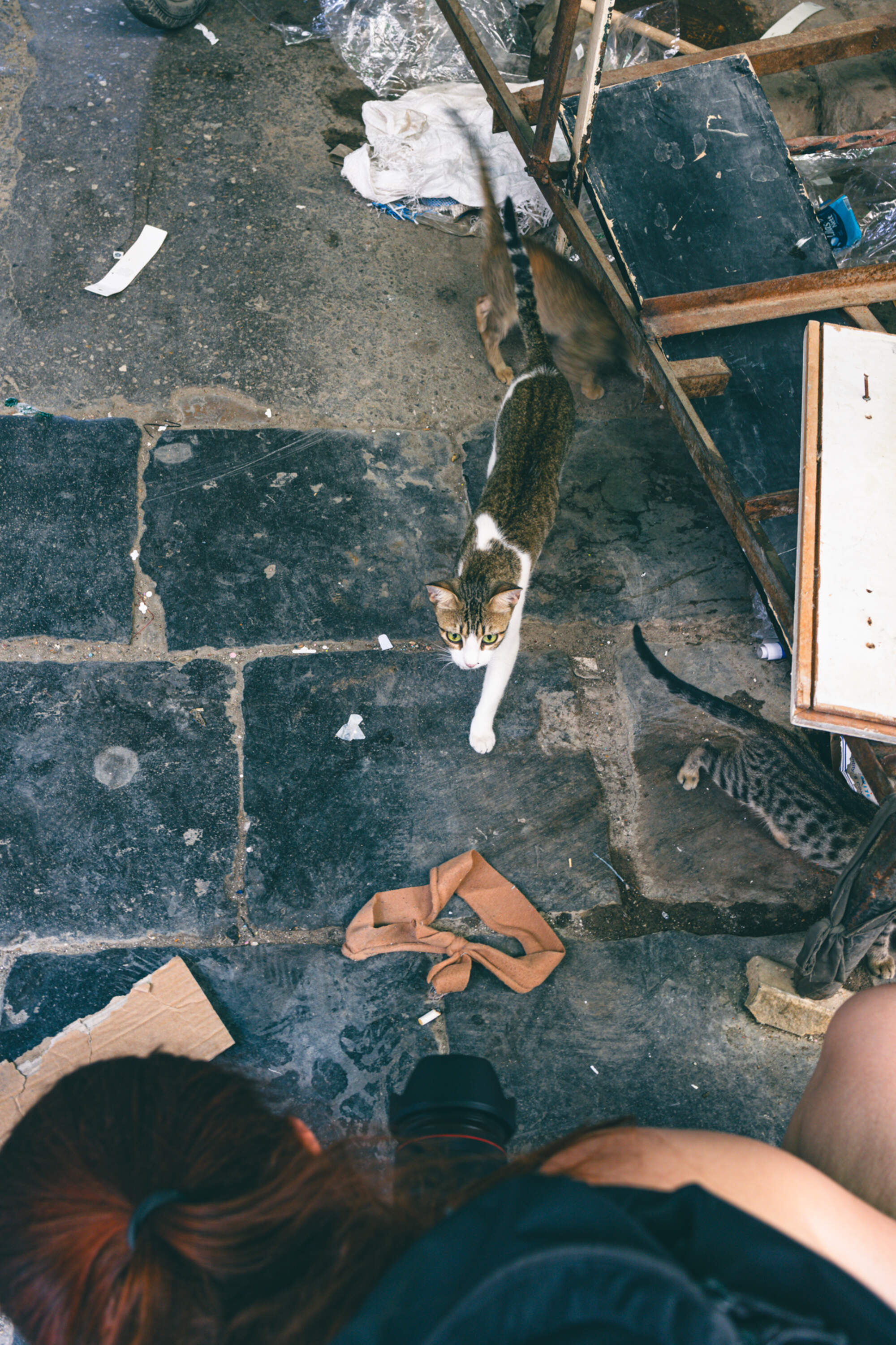
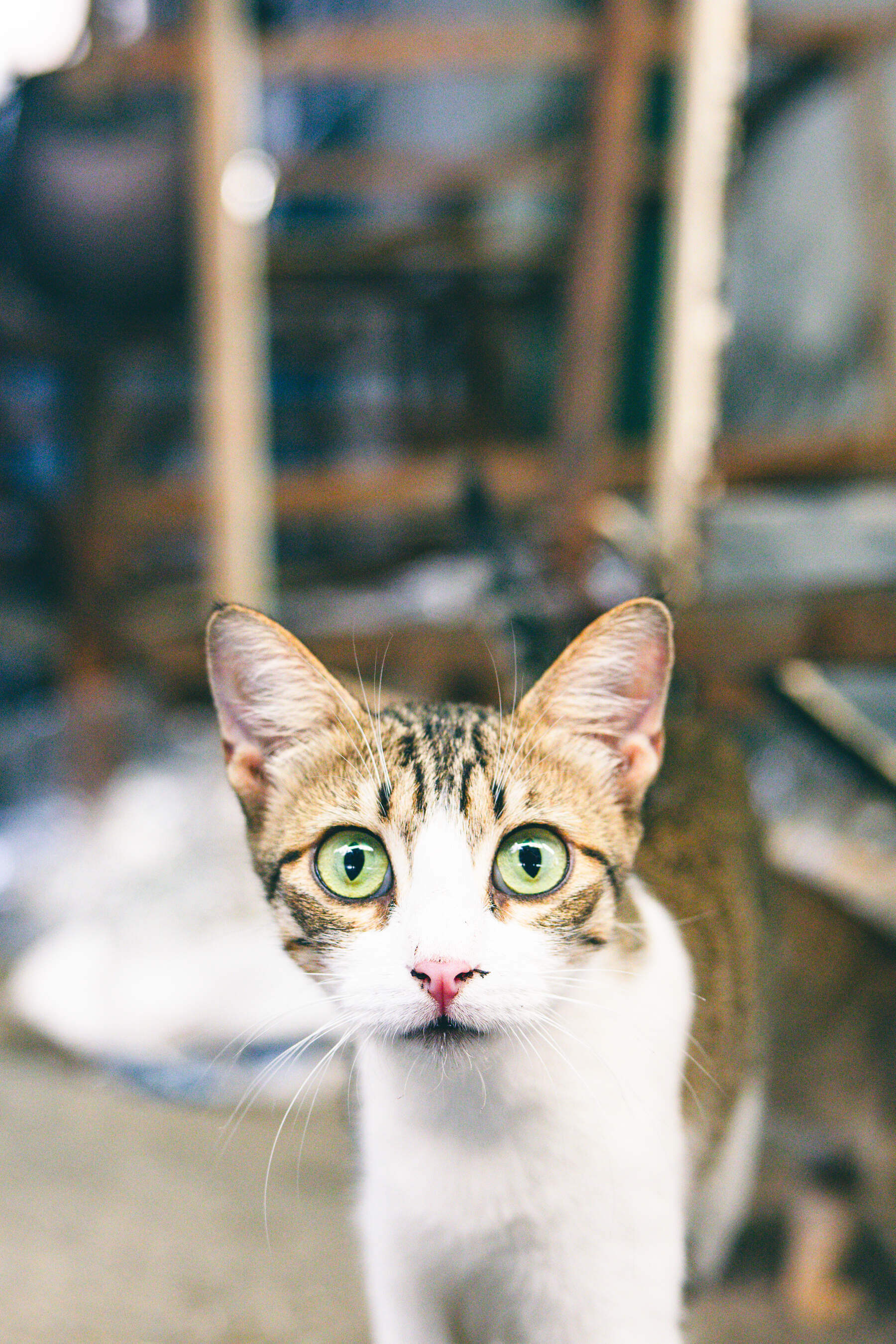
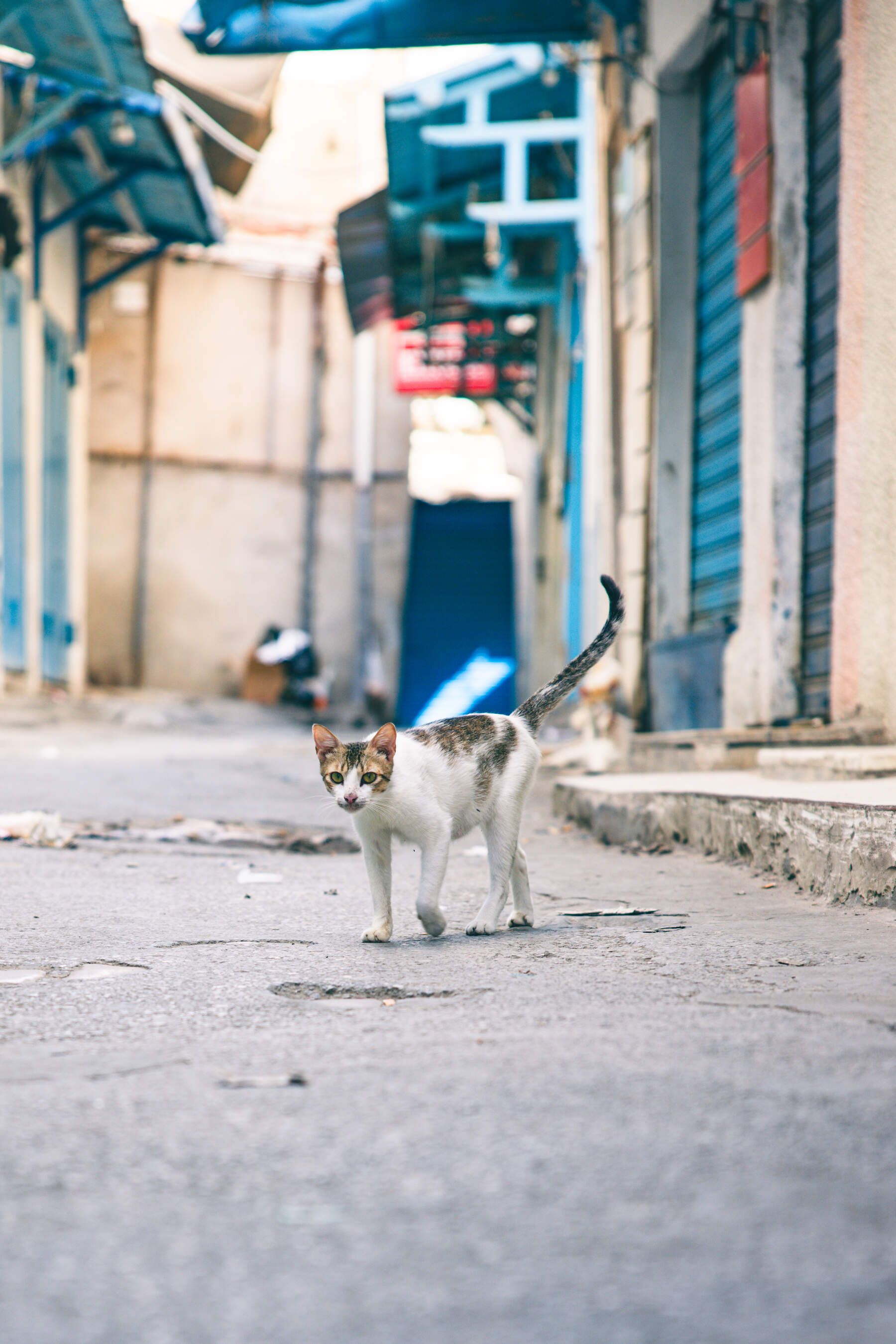
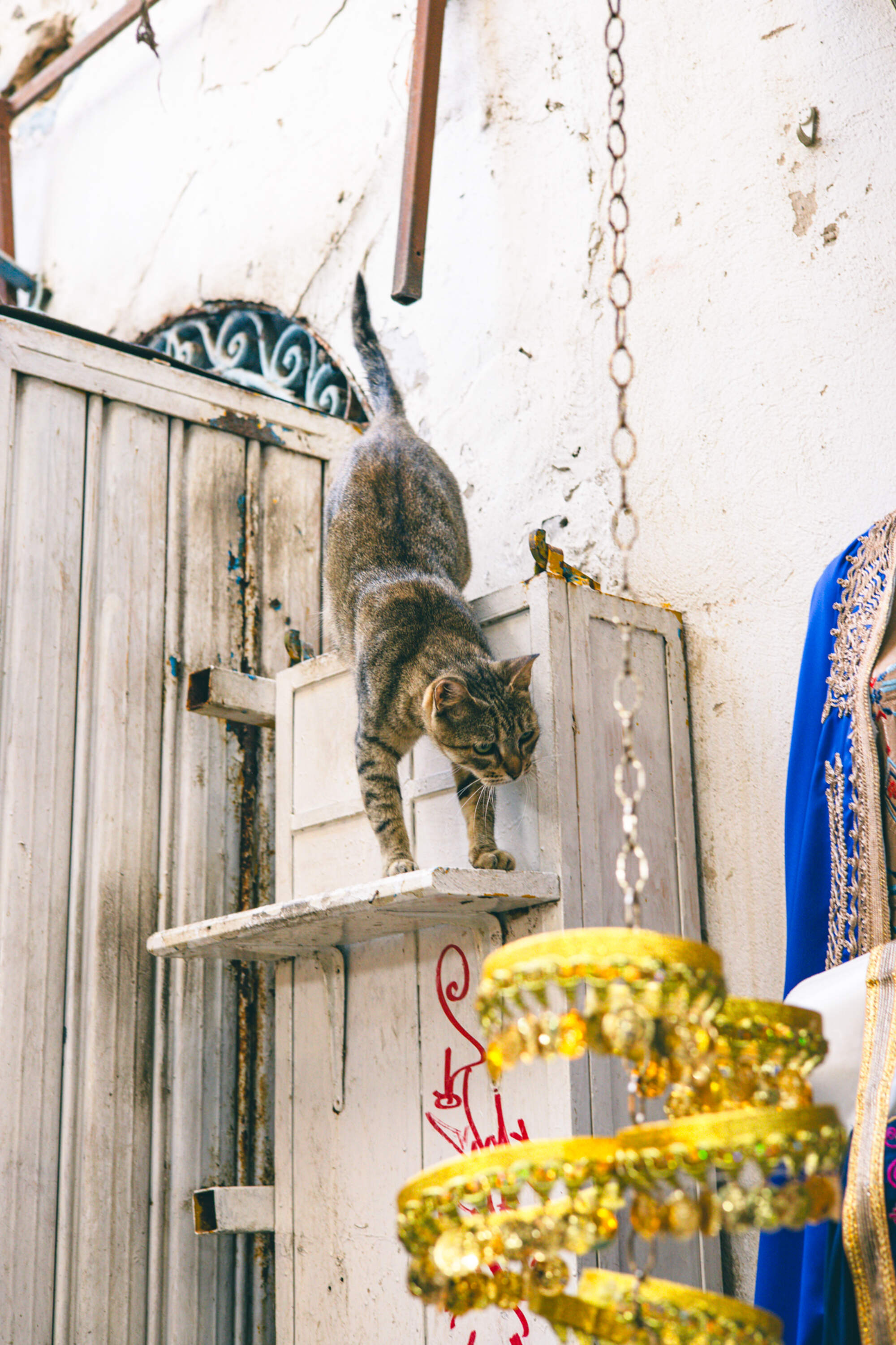
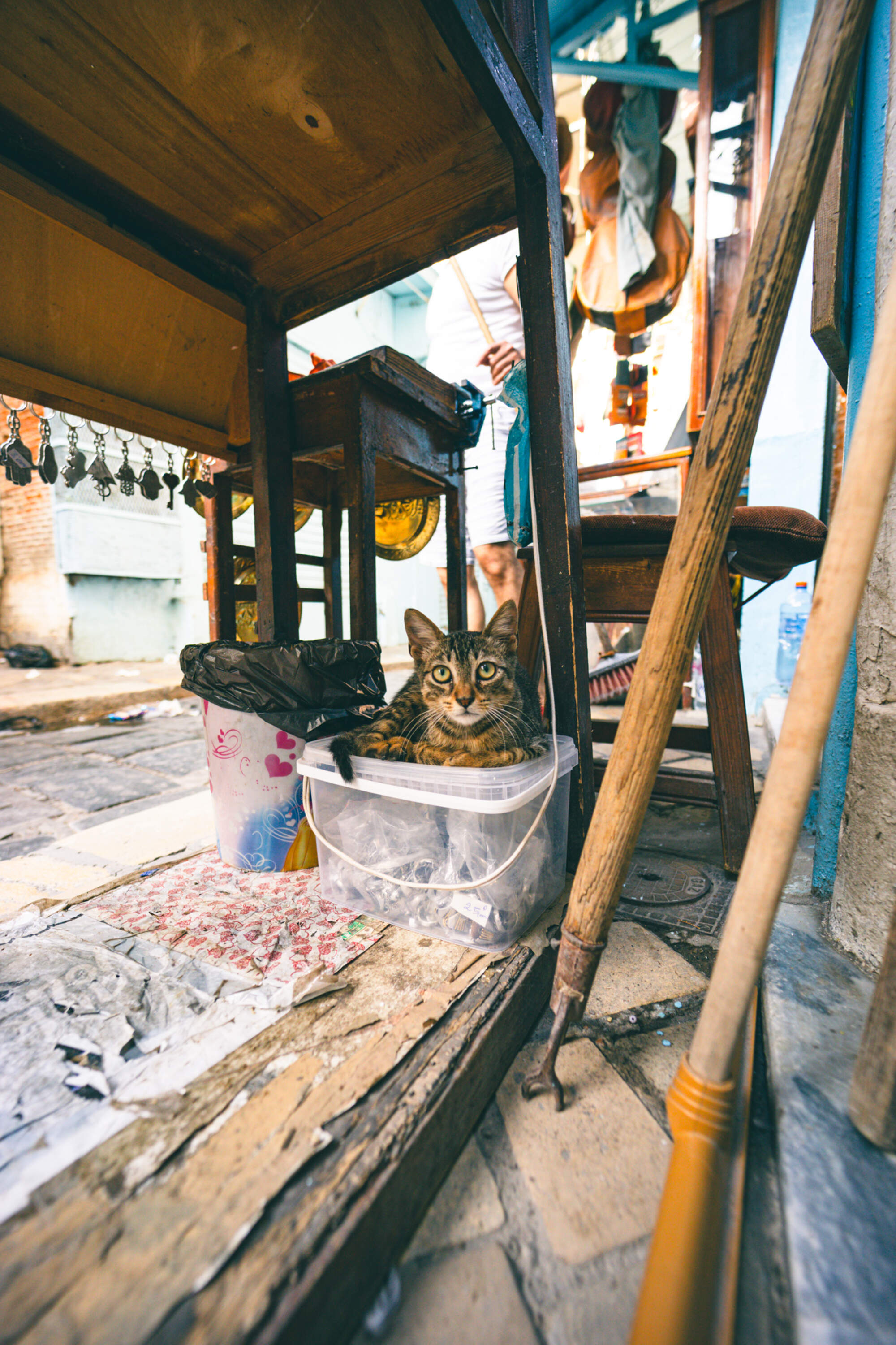
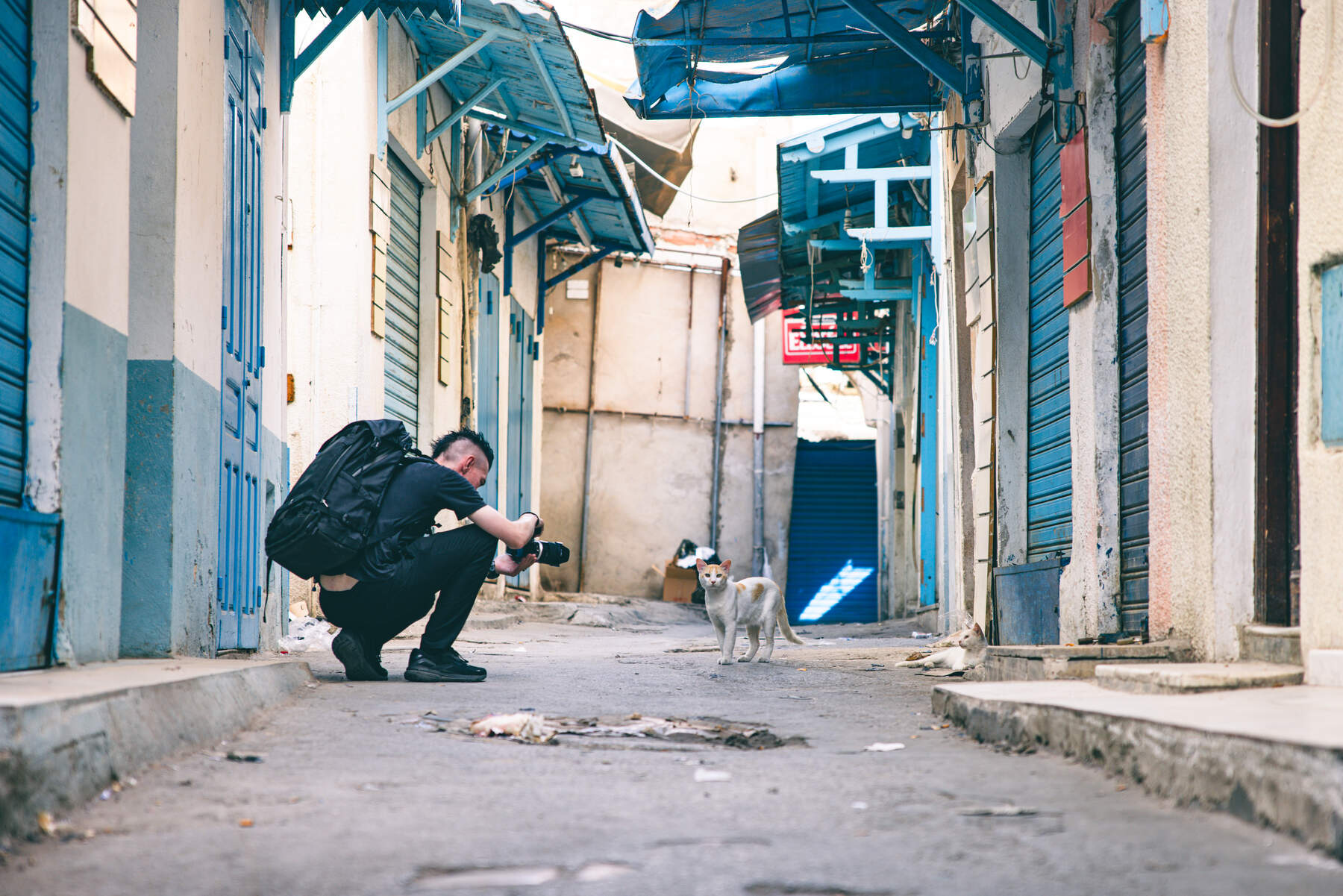
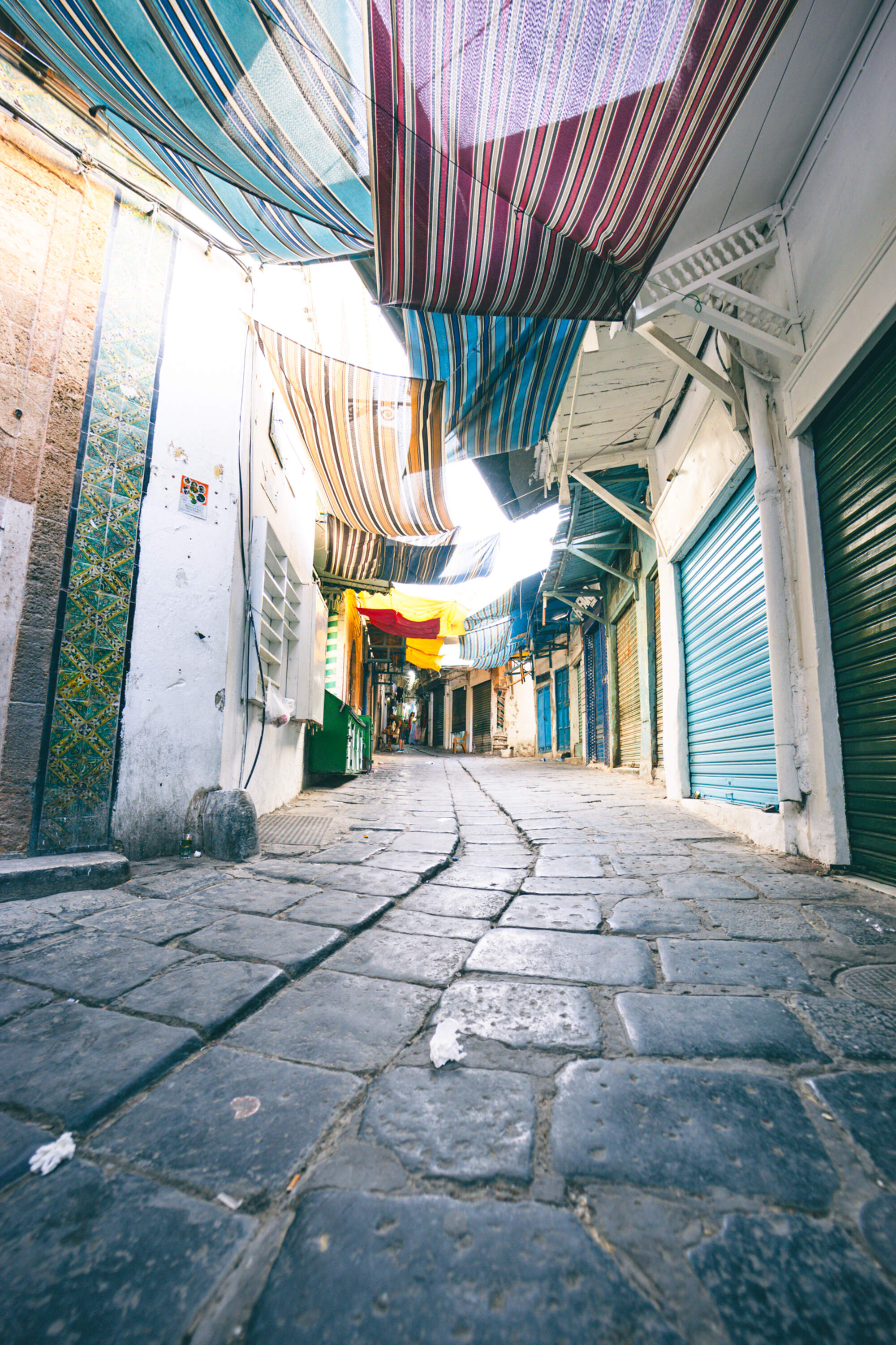
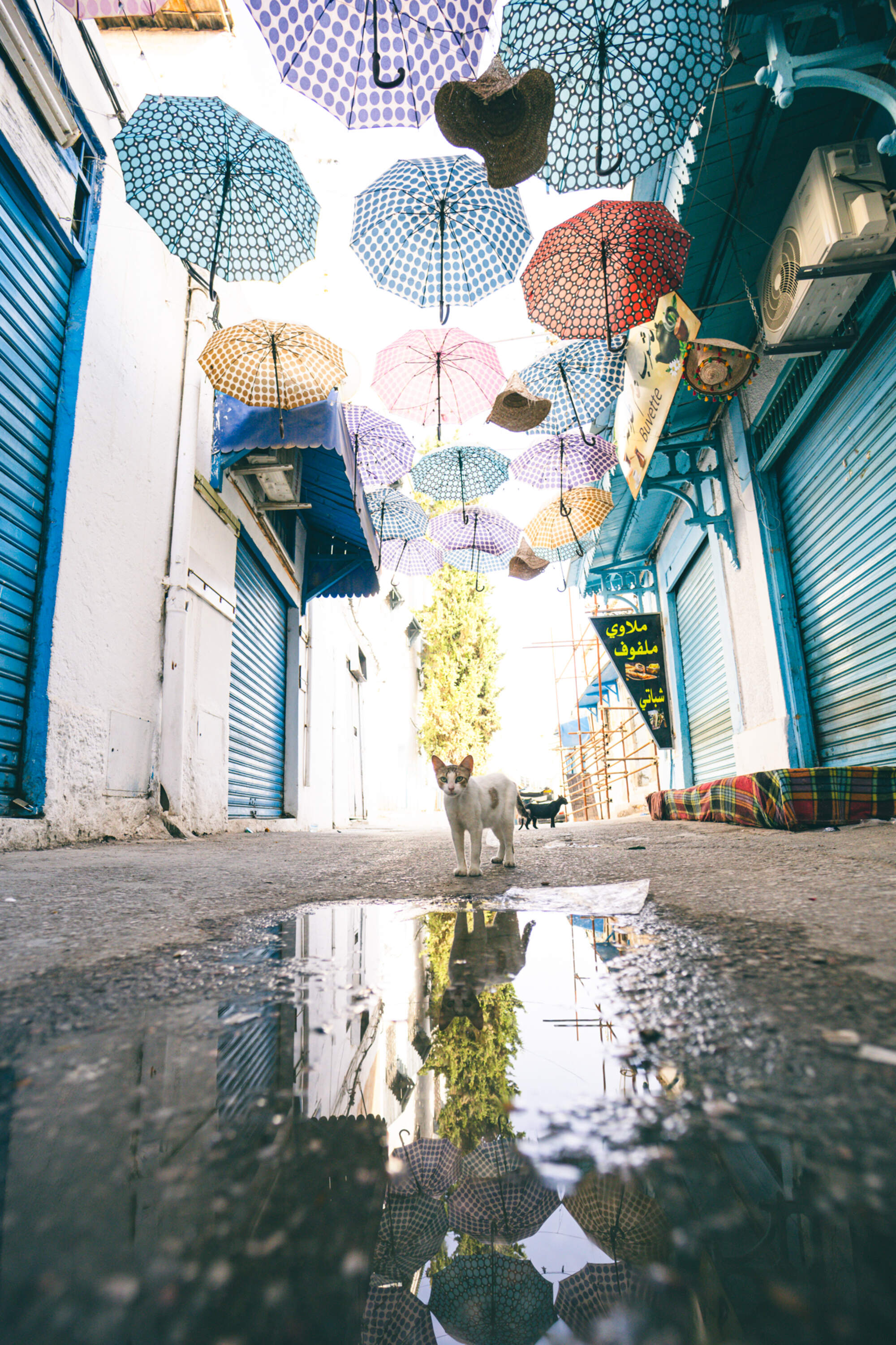
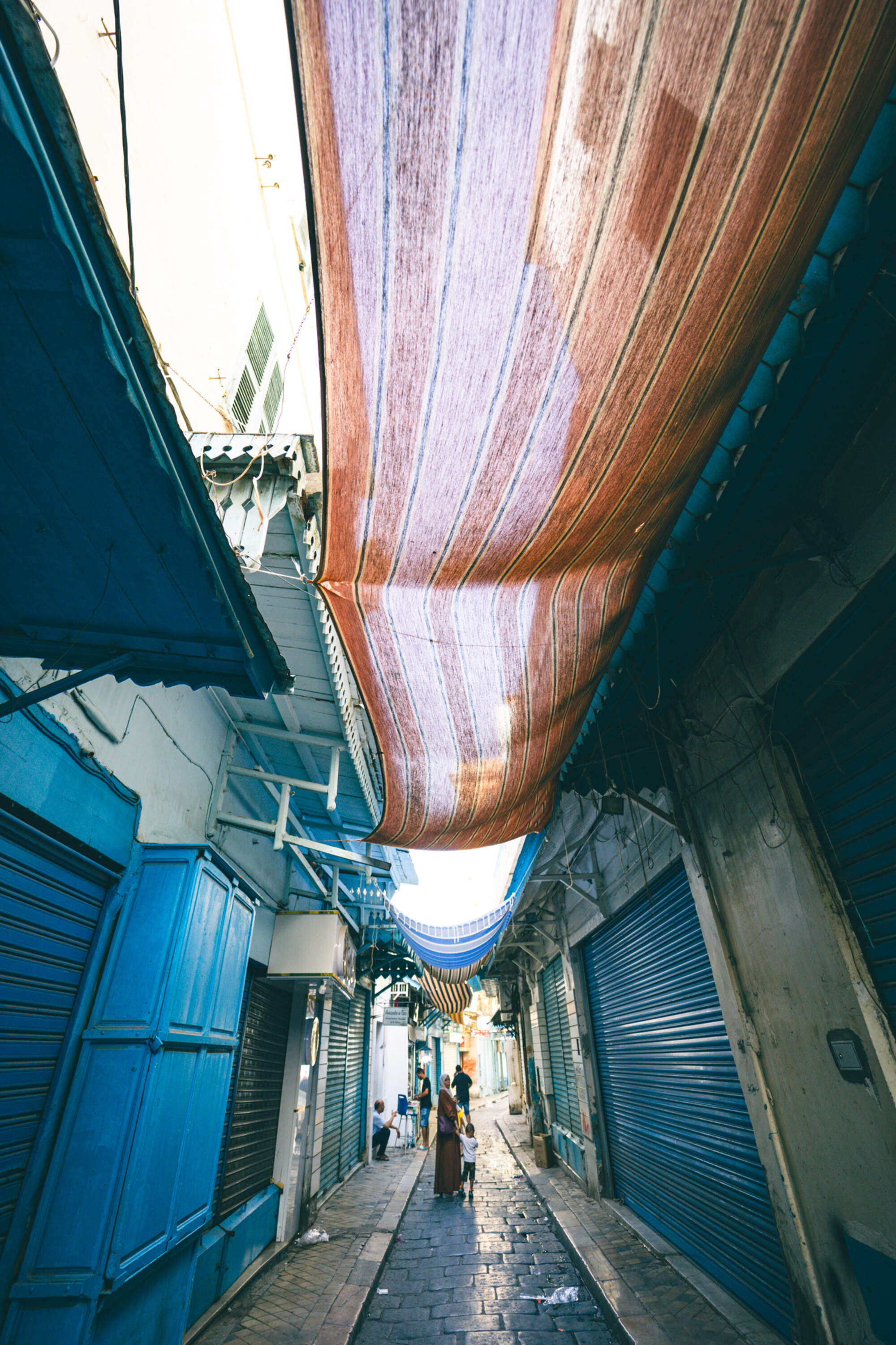
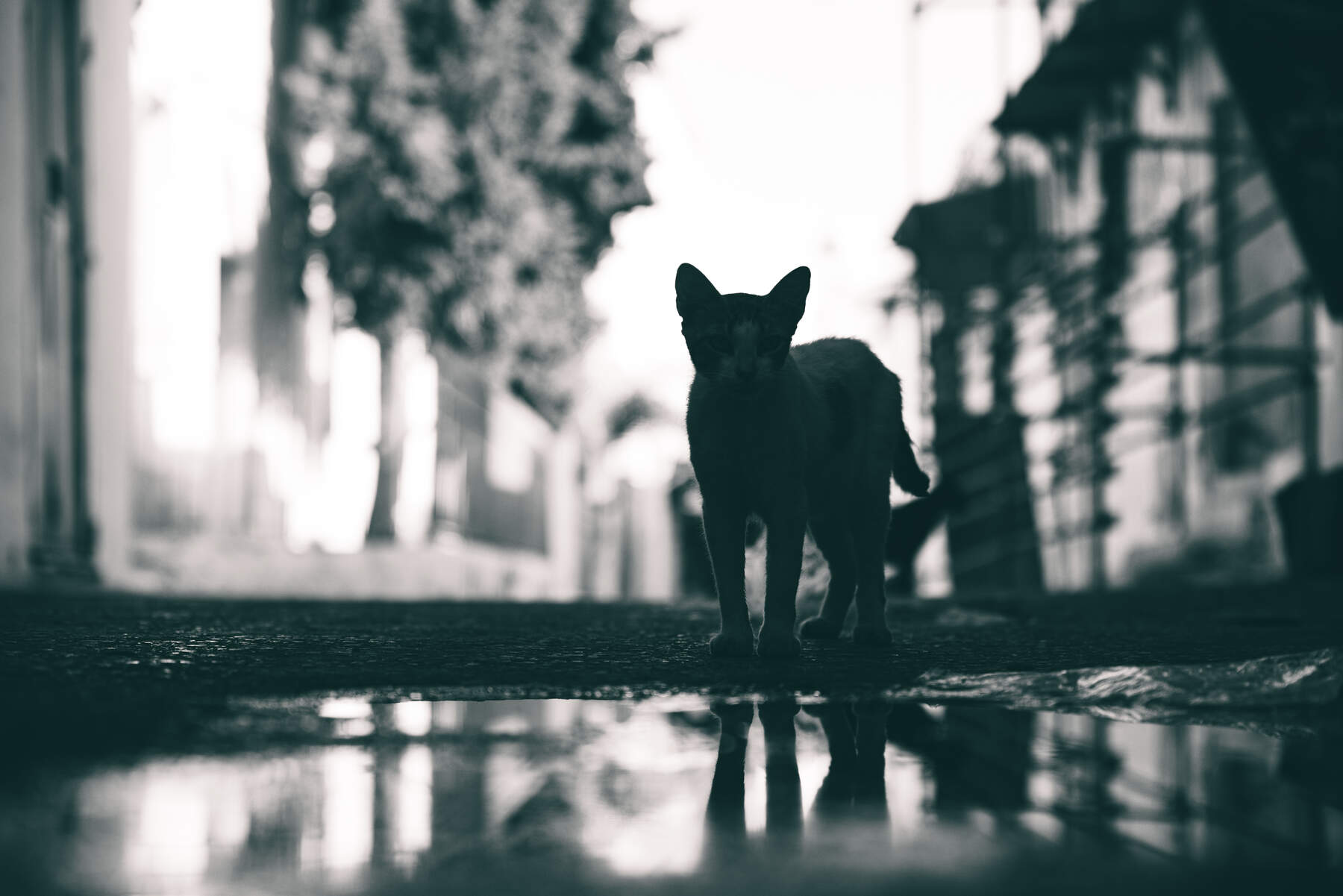
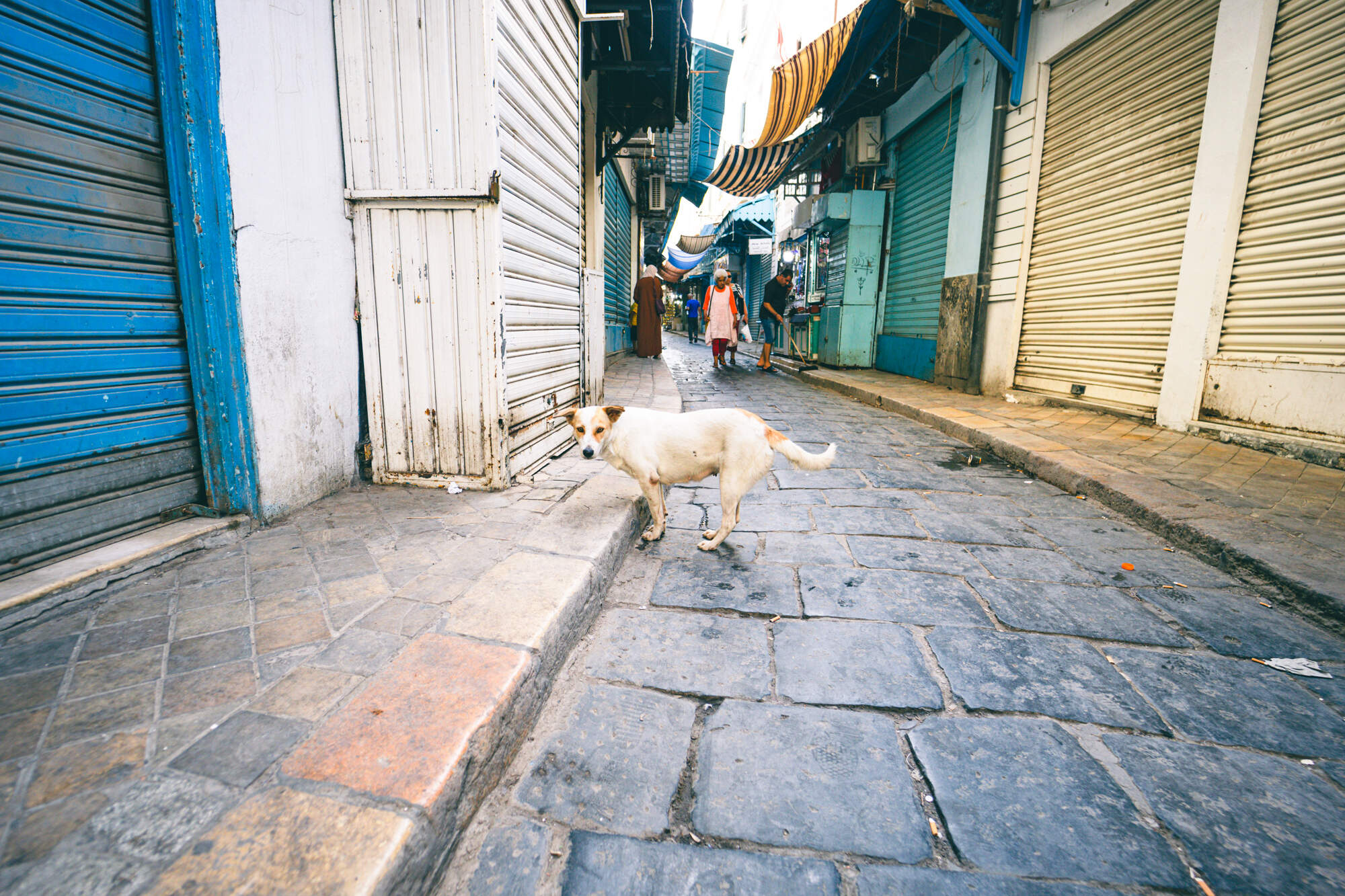
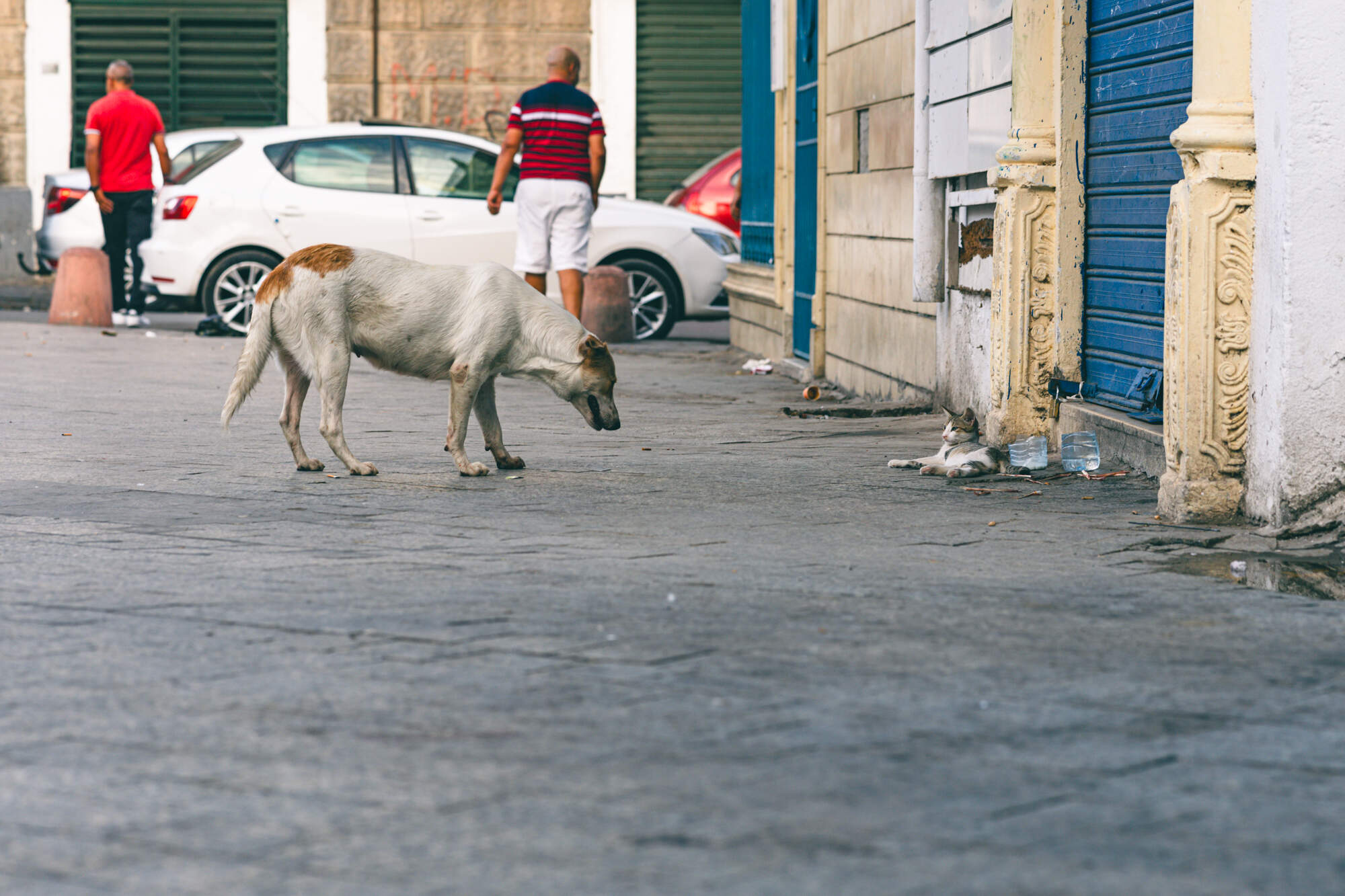
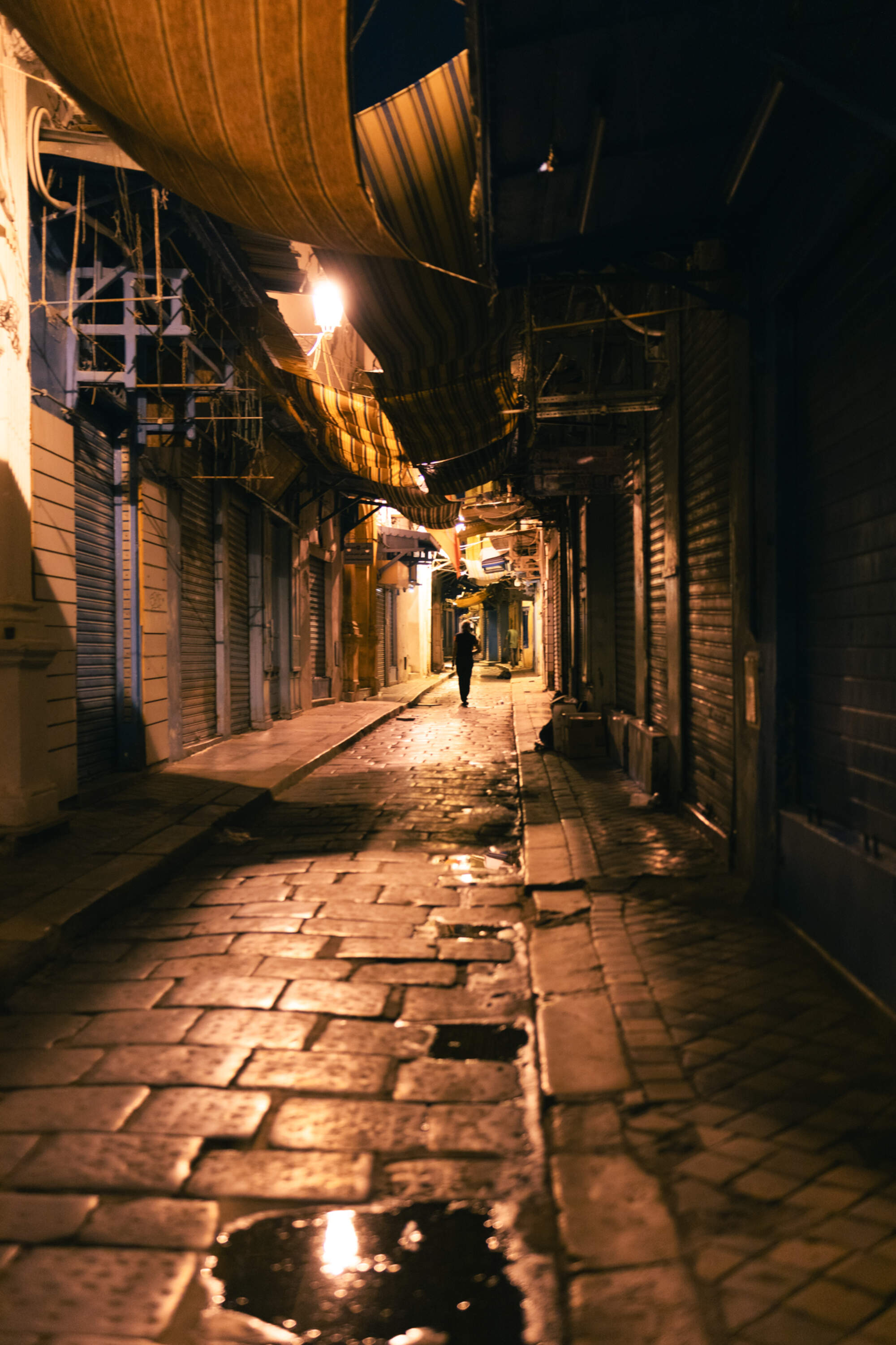
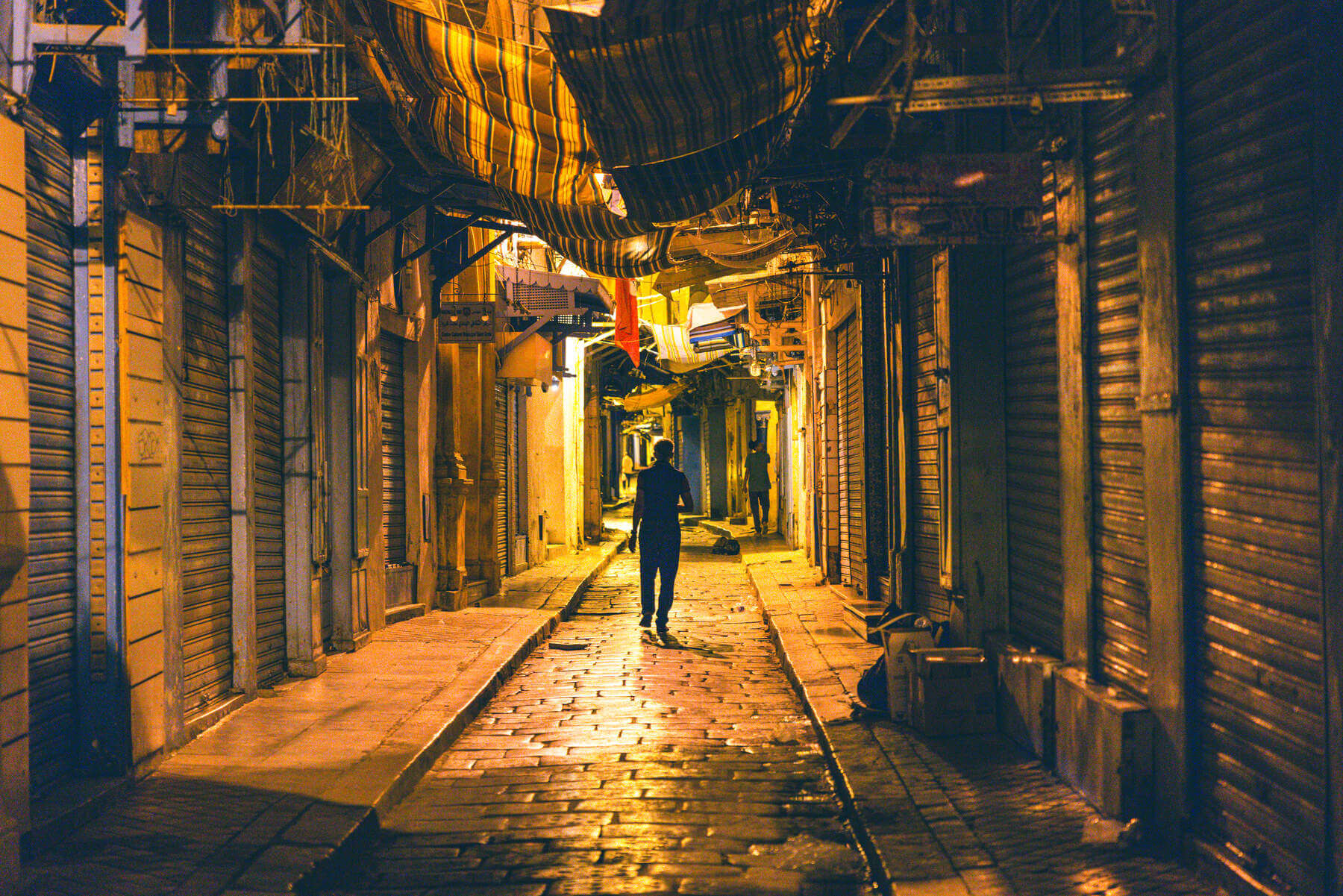
In the middle of the Medina, you’ll find the oldest mosque of the city: Ez-Zitouna Mosque. It’s entrances don’t look like much, but apparently it covers an area of 5.000m² and has 9 entrances (according to Wikipedia). According to announcements at the doors, only muslims are allowed to enter, but we heard experiences from others that say, that if you follow the rules for appropiate clothing and respect the prayer times and locations, one can also visit as non-muslim. We did not visit the inside of the mosque ourselves, so rather do your own research than trusting us.
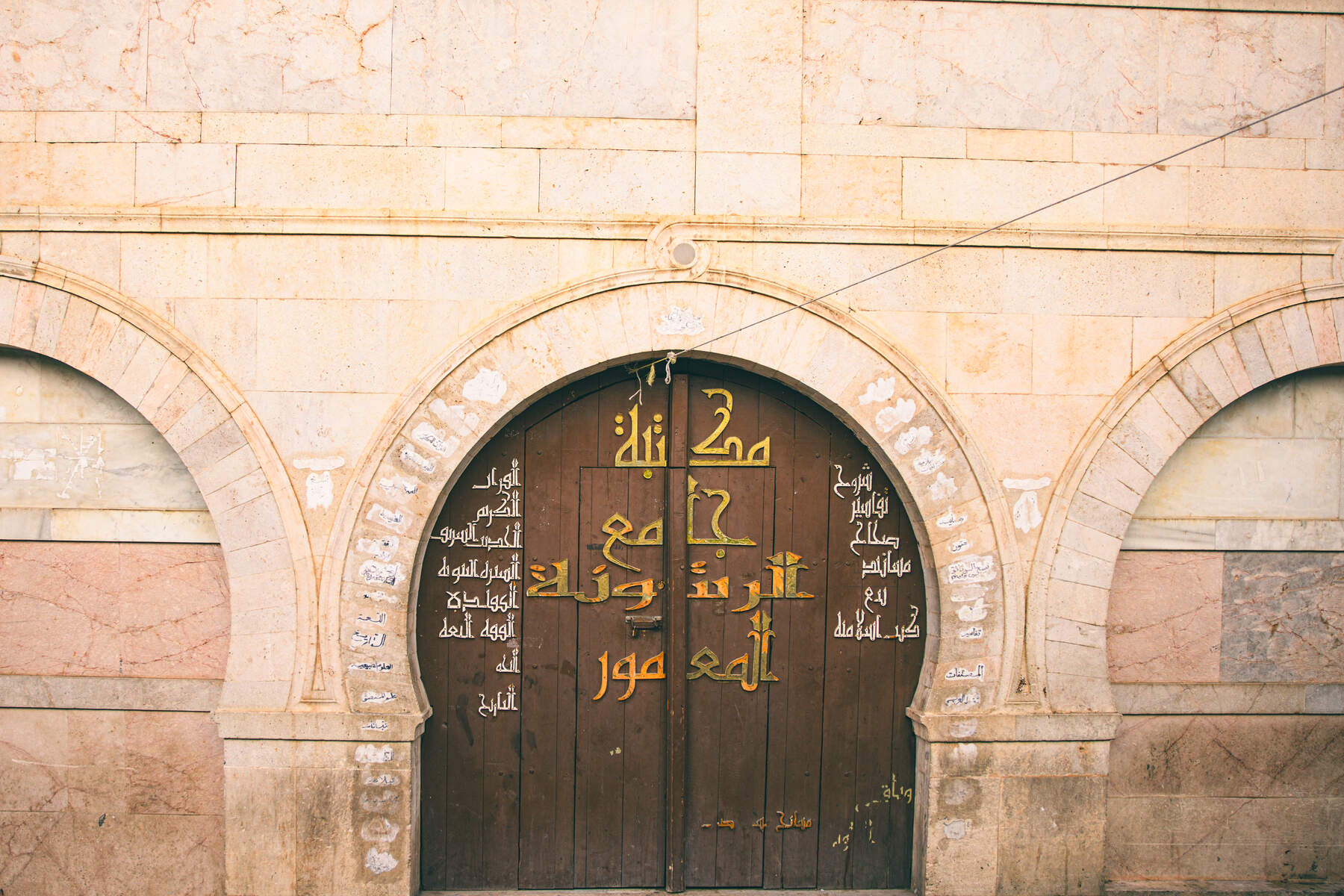
Architecture
As said, the infrastructure does not inviting walking long distances to differes parts of the city - which makes sense given that everyone must be out of their mind trying to get their steps in during a 42°C heat wave. In general, the city is characterized by wide roads and it covers quite a big area.
Old, run down buildings are located right beside shiny modern buildings.
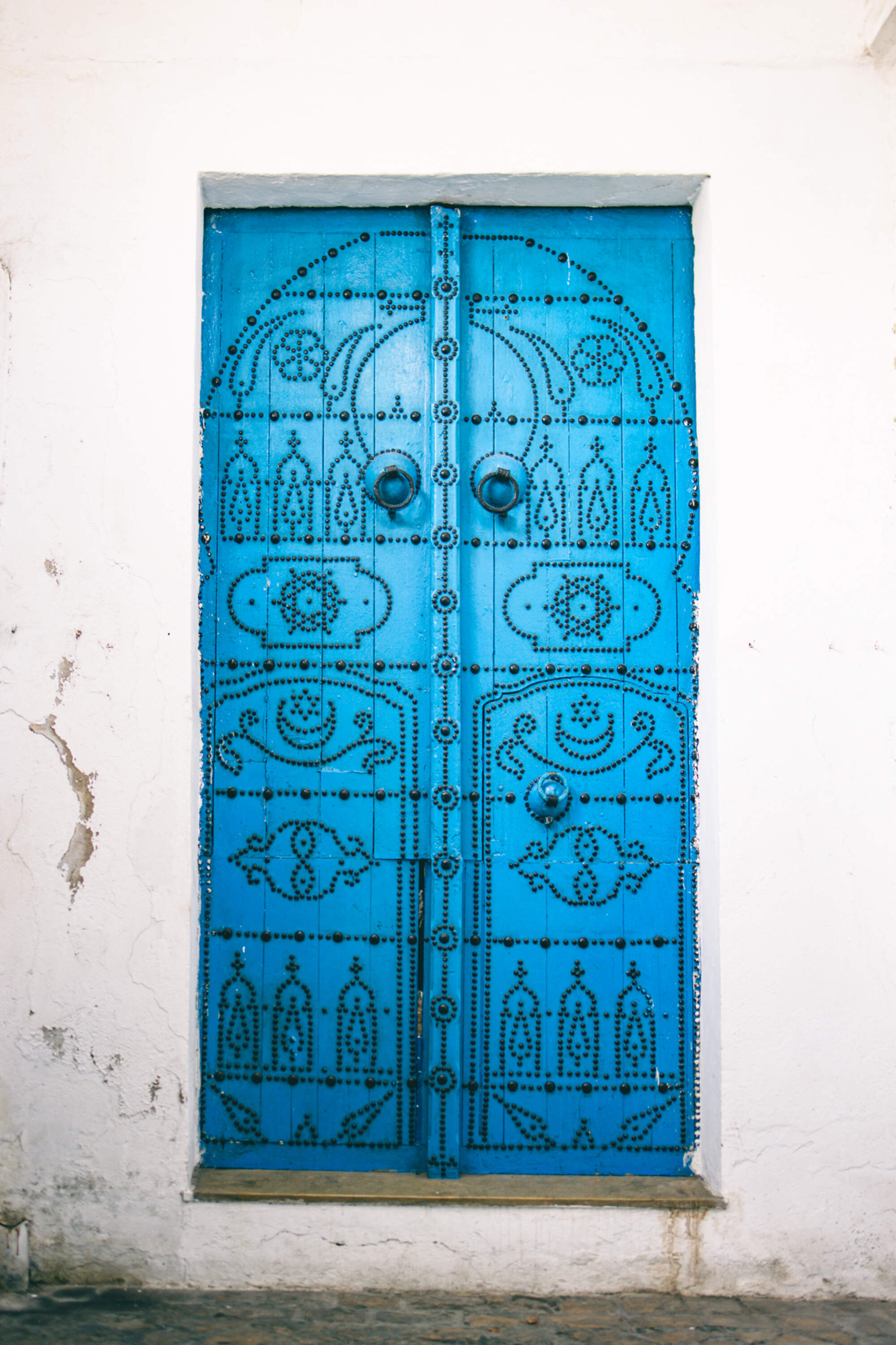
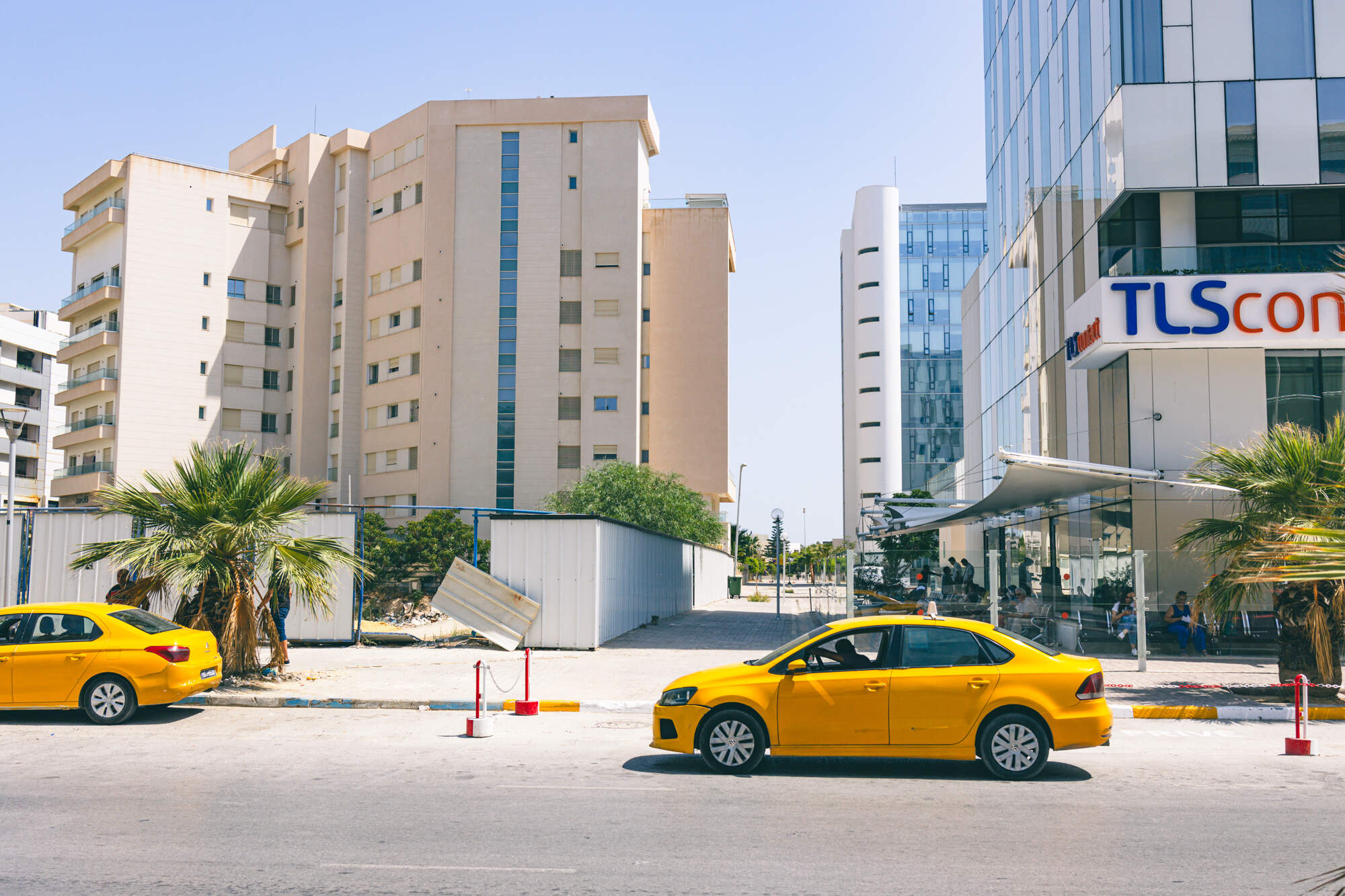
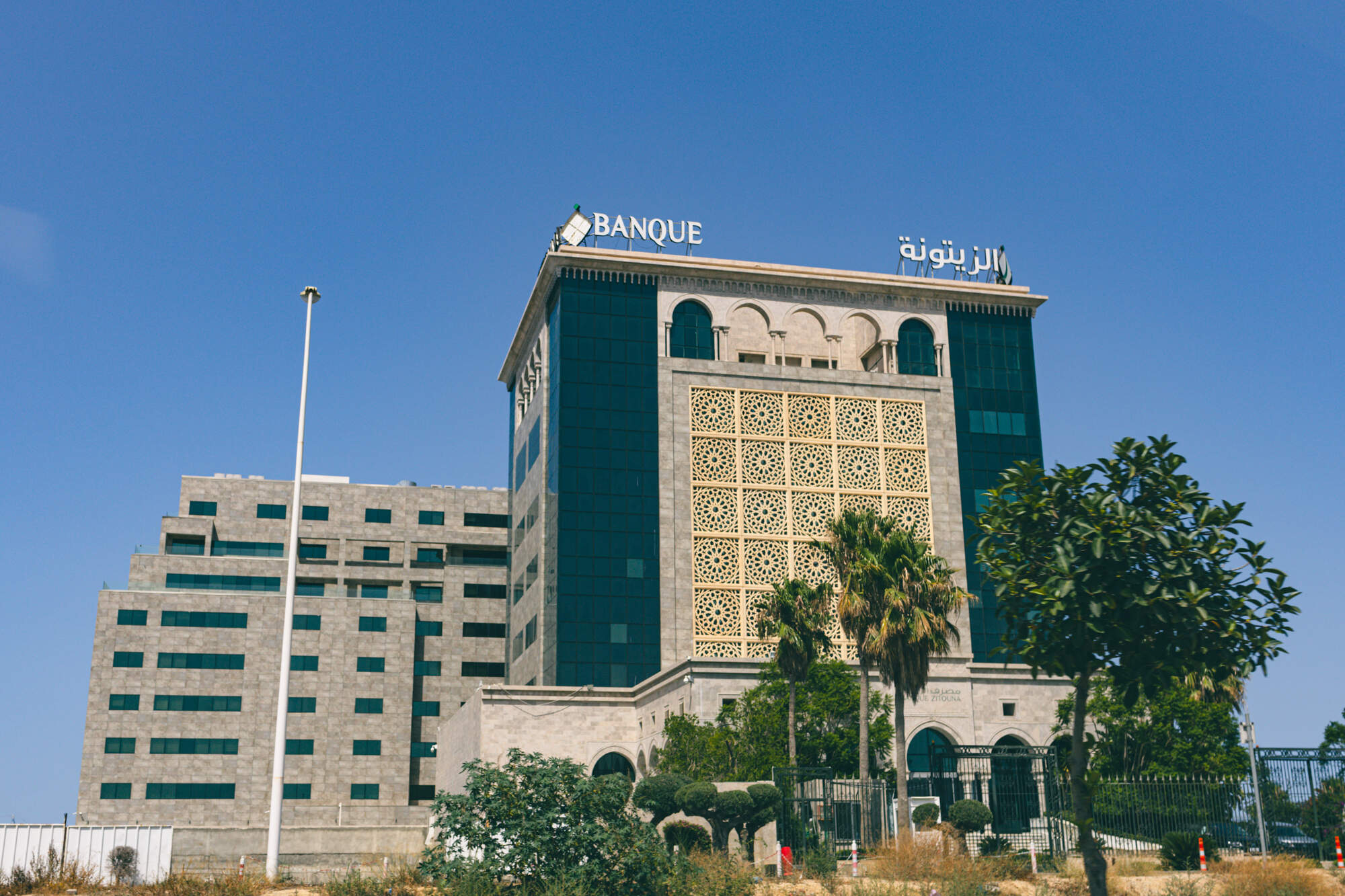
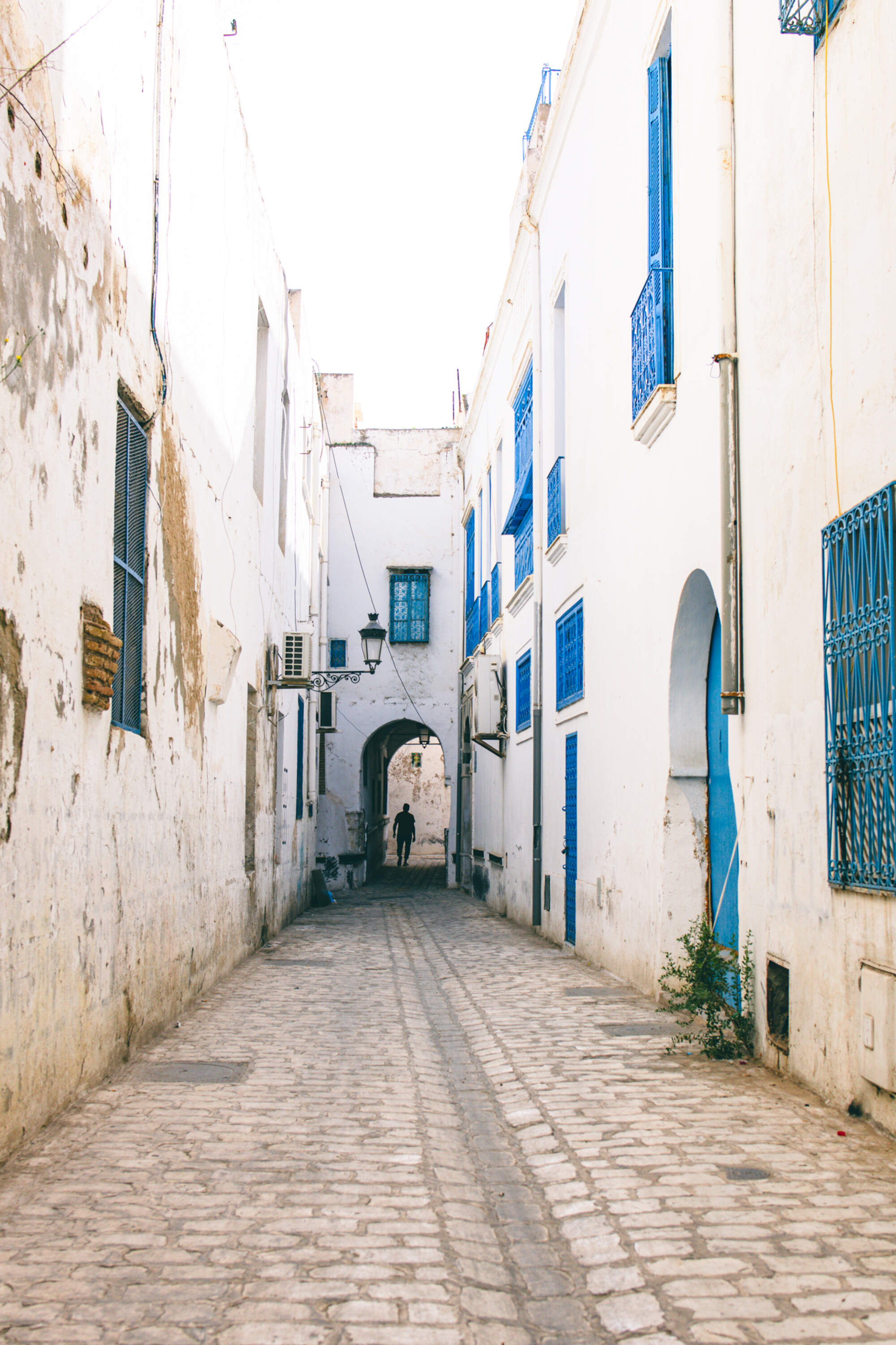
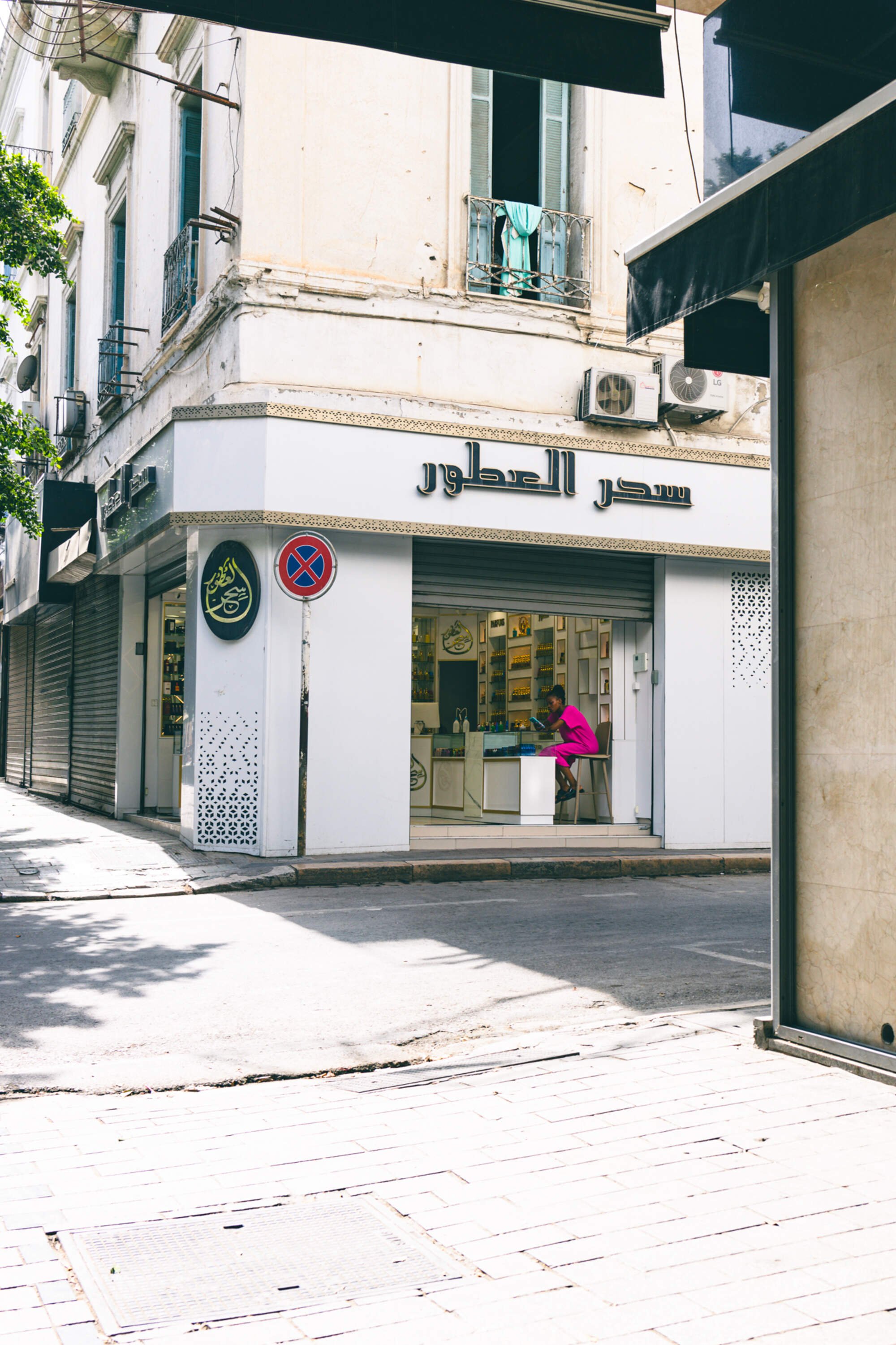
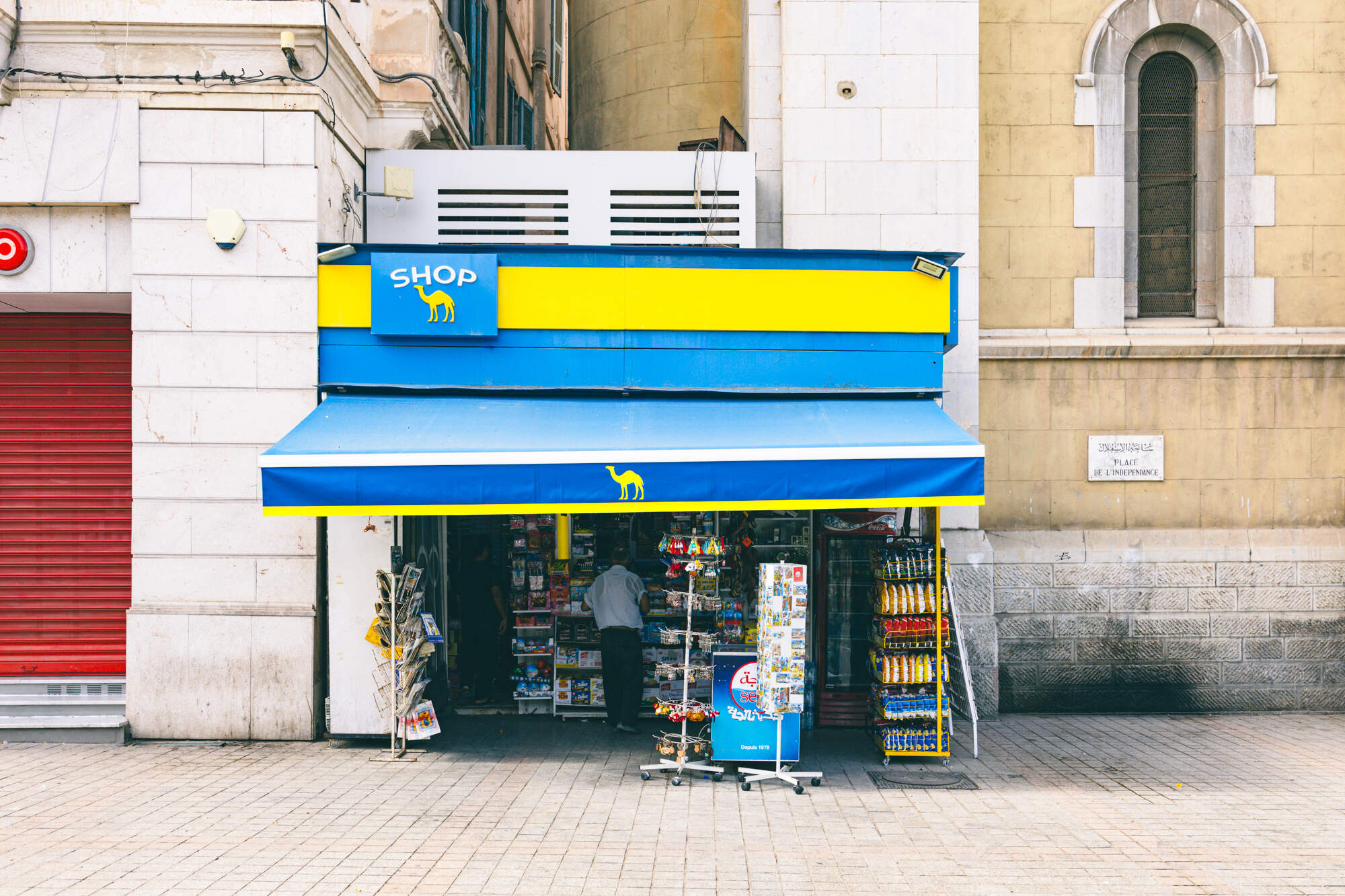
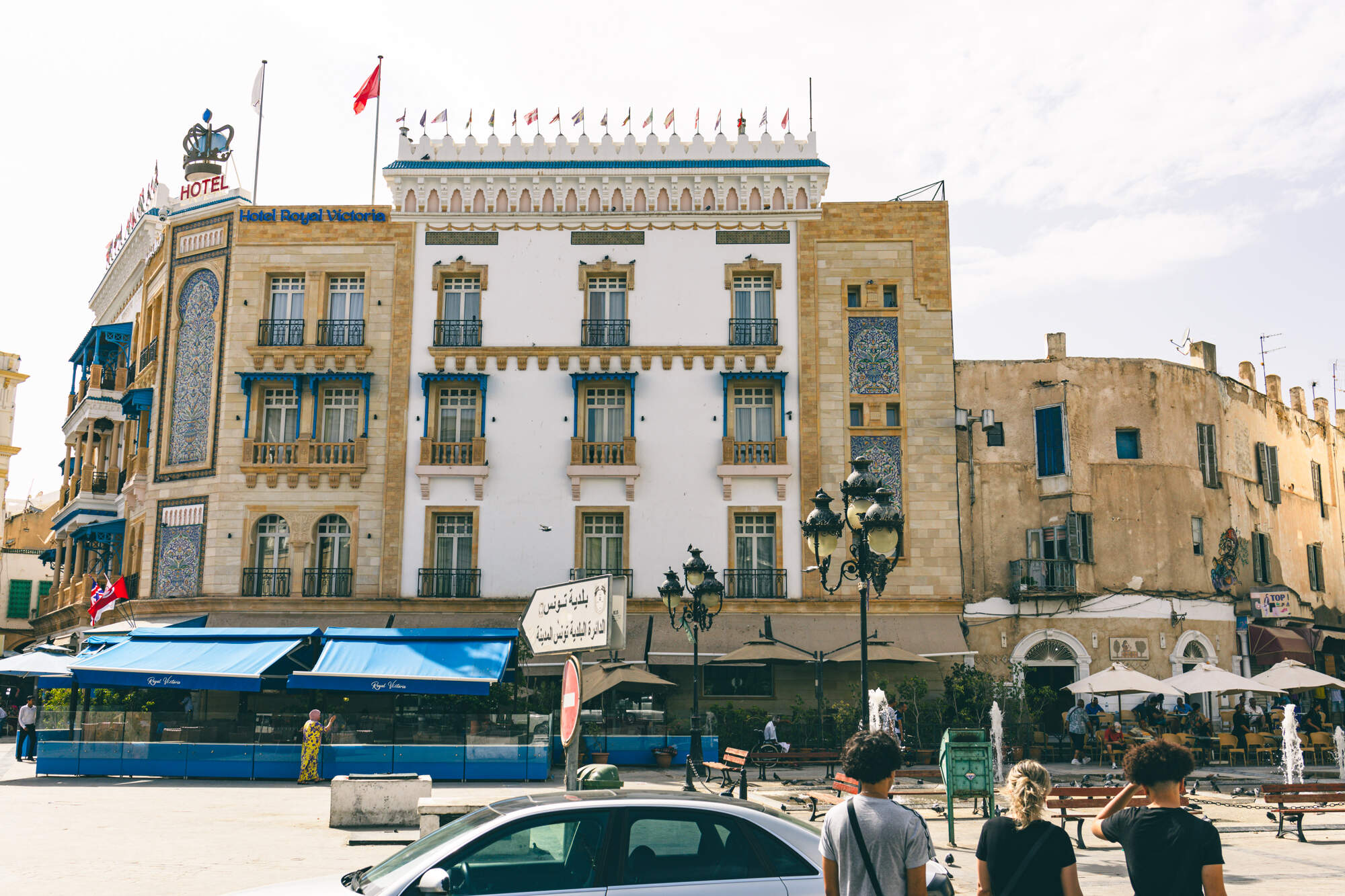
Apart from the general slight insecurity based on stark cultural differences, as a woman I did not feel unsafe. While tourism was not too bad while we were in Tunis, it clearly is an important income and you see westernly dressed people in shorts and short skirts many places.
After thinking it a bit over, I even considered that while women might get called out more in Mediterranean countries, in Tunis it was more the opposite: if anything, I was on average ignored more than Jonathan.
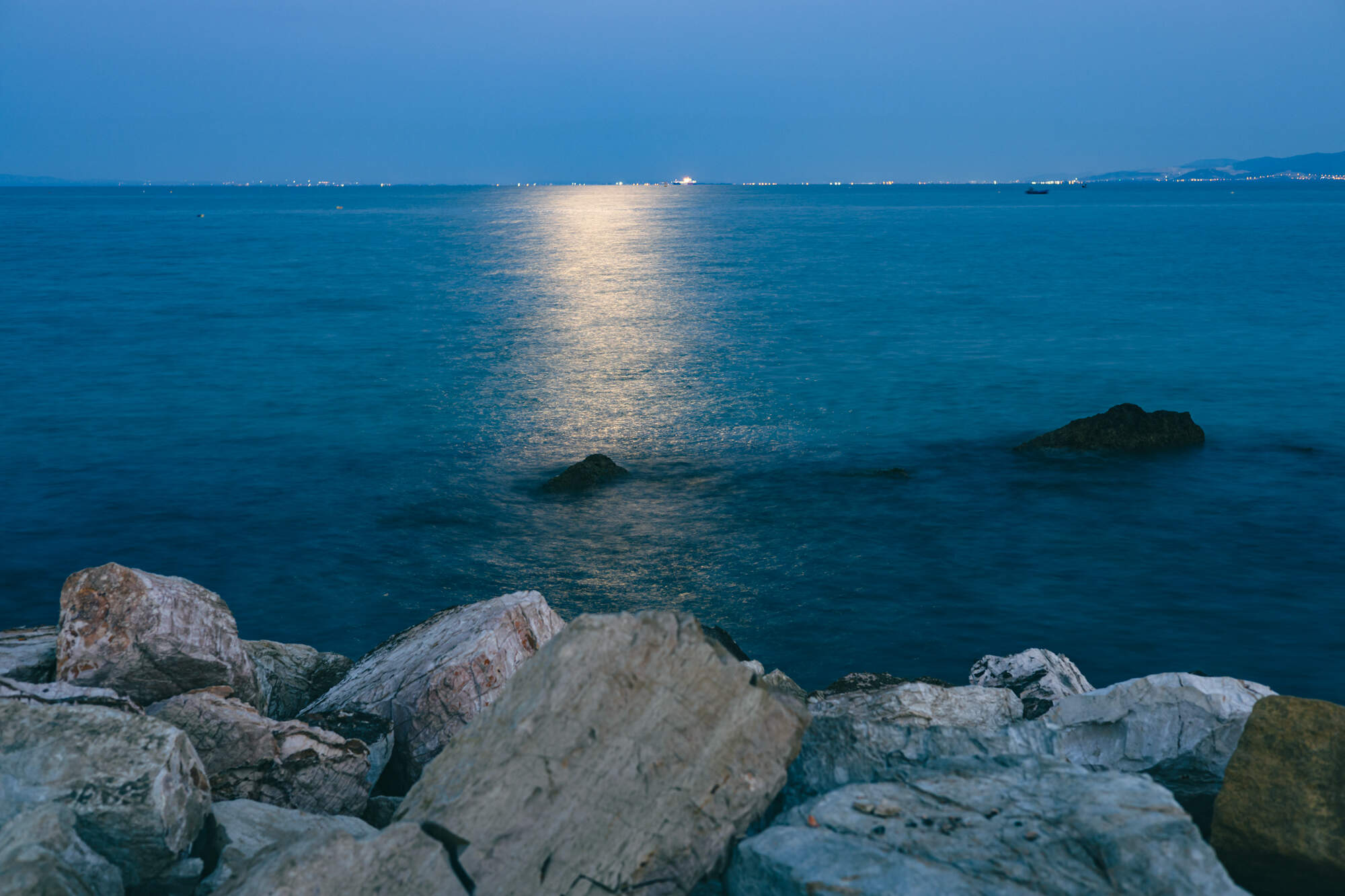
We found a small local beach when wandering about one evening.
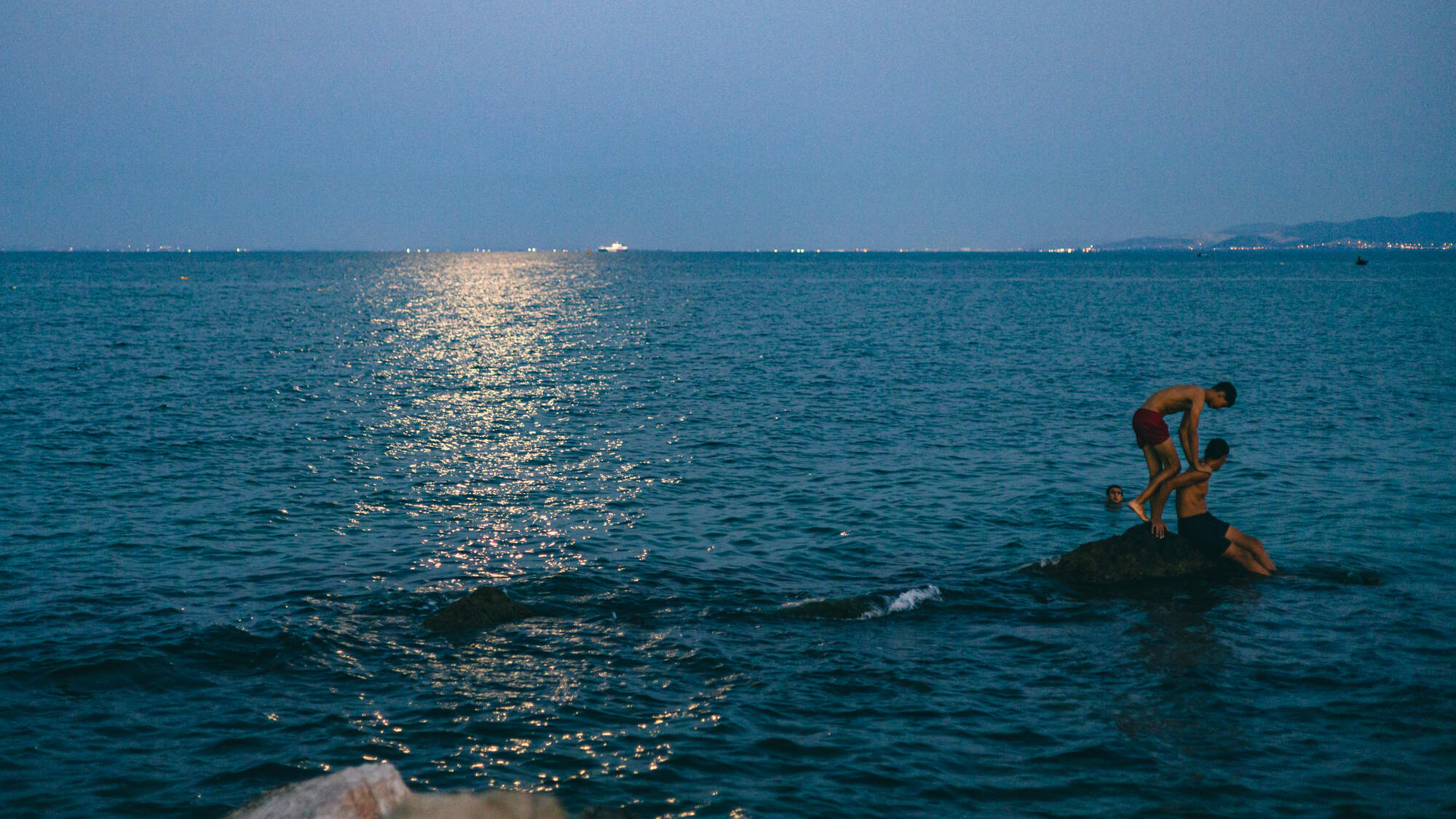
Parents were hanging out on the beach while their small children were playing wildly in the refreshing water in the dark.
